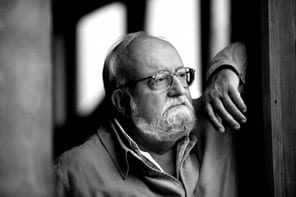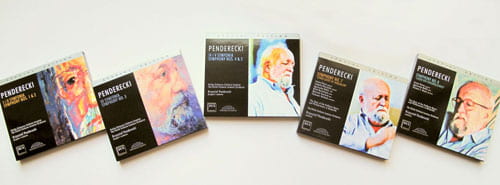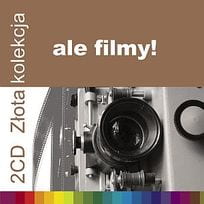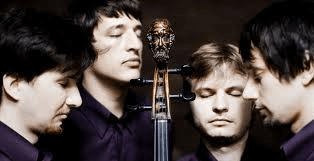Polish Music Newsletter Vol. 20, no. 1
Remembering Wojciech Kilar…
By Marek Żebrowski, PMC Director
 The phone rang several times before a slightly raspy voice answered with an impatient, “Hello?” on the other end. I had placed the call, hoping to convince Mr. Kilar to come to USC as a guest of honor and guest lecturer for the 2008 Paderewski Lecture-Recital featuring his music.
The phone rang several times before a slightly raspy voice answered with an impatient, “Hello?” on the other end. I had placed the call, hoping to convince Mr. Kilar to come to USC as a guest of honor and guest lecturer for the 2008 Paderewski Lecture-Recital featuring his music.
“Oh, I love America,” Mr. Kilar began after my lengthy and rather awkward pitch on that July morning in 2008. “But it’s such a long journey. And I lost my wife recently. Perhaps my turn will come soon.”
I tried to protest. “You have many productive years ahead. We’ll take good care of you and I’m sure you’ll love the audience of students, Polish émigrés, and a huge number of film fanatics who love your scores. Also, Lutosławski and Górecki had visited our campus in the past,” I added, expecting that Mr. Kilar’s might change his mind.
He seemed to hesitate a little. Perhaps it was an opening, after all. “Our concert, co-organized with the Polish Consulate in Los Angeles, will celebrate Poland’s Independence Day,” I continued brightly. “Consul Paulina Kapuścińska will send you a personal letter invitation.”
“That’ll be nice. Thank you. I appreciate it and will consider the offer.” Alas, this was an indication to change the subject, so we talked about music, his upcoming premieres in Poland, as well as other, less weighty matters, including cars, soccer, flying airplanes, and cats. A few weeks later there was a gracious, handwritten reply to Consul Kapuścińska, explaining at length his regrets. Mr. Kilar wouldn’t be coming to L.A. after all.
Refusing the prospect of a total defeat, I picked up the phone and dialed his home number again. He recognized my voice instantly. “Thank you for calling. I suppose you got my letter.” I assured him we did. “But,” I continued, “We would still like you to say a few words to our audience before the program. Would you be willing to give us a video interview?” There was a sigh of relief on the other end. “Of course,” he said. Much encouraged, I continued, “My friend, Krzesimir Dębski—I’m sure you know him—will be in Katowice for a concert. Could he stop by and record a little chat with you?” Mr. Kilar cleared his throat. “I know Krzesimir and would love to talk to him.”
Pressing my luck a little further I added, “And we need to discuss the repertoire too. What do you think of programming your Wind Quintet, selections from The Pianist, The Ninth Gate, The Portrait of a Lady, and finishing with your splendid Orawa?”
“Well! Is anyone interested in my Wind Quintet? It’s such an old piece…” Mr. Kilar’s voice trailed off a little. I interjected. “We have an excellent group here, Midnight Winds, and they played your Quintet a few times already.” “Is that so? Really! How wonderful. And the other pieces you mentioned will make a fine program. Go ahead and thank you!”
Krzesimir Dębski’s video interview with Mr. Dębski was expertly edited by Jann Castor, a local musician and filmmaker. Clad in his trademark leather jacket, Mr. Kilar was very direct and engaging in describing his work as a composer, as well as his collaboration with Francis Ford Coppola, Jane Campion, and Roman Polański. Shown just before the concert, this video clip elicited a long and hearty applause from a large audience at Bovard Auditorium.
The rousing score of Orawa was a clear favorite of the USC orchestra and its conductor, Sharon Lavery. Already during rehearsals, several young musicians expressed their great admiration for the score, its vibrant atmosphere and strong emotional charge. The neo-classical elegance of the Wind Quintet, the hauntingly lyrical Vocalise from The Ninth Gate performed by Krysta Close, and the suite of beautiful melodies from The Portrait of a Lady still resonate in my ears after all these years.
Mr. Kilar’s spirituality and spirit of tolerance came across in everything he laid out in words and music. His noble simplicity and genuinely natural bearing made him instantly attractive to all who entered the sphere of his magnetic personality. He could talk with great admiration about America and things he loved (American literature, architecture of New York and Chicago, cowboys, detectives, apple and cherry pies, and American people). He also relished discussing cars, especially his Mercedes sedans, the last of which—always gleaming and ready for a spin—proudly carried the “S1 BASIA” plate, in honor of his wife, Barbara, who died in 2007.
When questioned about music, he strongly believed that composing is a lonely occupation. For over sixty years he lived in Katowice, an industrial center of Poland’s mining district and a place not really associated with high culture like Kraków or Warsaw. It suited him well. He admired his neighbors and their respect for hard work, for he too saw work as a prayer, and the burning intensity of his music is present in everything he produced during his long and rewarding career. Following the news of his death, the echoes of his music—and of our conversations—brought back a stream of reflections. There were the open landscapes of Polish Highlands that excited and inspired him deeply, the cadences of Latin prayers that brought such joy and spiritual energy to his compositions, and the open roads he so eagerly followed, especially during summer excursions from Katowice to the Jasna Góra monastery where he would meditate and commune with God.
His musical tastes ranged from Mozart and Bach to mainstream jazz and swing, as well as hits by Pink Floyd, The Doors, and Bob Marley. When driving alone he wouldn’t listen to music, preferring talk radio instead. “To be honest,” he once averred, “I’m slightly afraid of being influenced.”
For the past five years, the Katowice Cemetery at Sienkiewicza Street was his other favorite destination. Spending time and praying at the graveside of his wife was a sacred duty to his beloved partner of forty years. This quiet plot, not far from Henryk Mikołaj Górecki’s burial place, is where Mr. Kilar was laid to rest on Saturday, January 4.
* * * * *
Wojciech Kilar, a Polish pianist and composer of classical music and scores for more than 130 films, died on Sunday, December 29, 2013 at the age of 81. Although his passion was composing symphonies and concertos, he was best known around the world for his film scores, including Roman Polanski’s Oscar-winning The Pianist and Francis Ford Coppola’s Bram Stoker’s Dracula. On Saturday, January 4, Poland’s First Lady Anna Komorowska and Minister of Culture and National Heritage Bogdan Zdrojewski joined musicians and hundreds of Kilar’s fans for a State funeral ceremony featuring the composer’s music at the Cathedral of Christ the King in Katowice.
For further news regarding the passing of Wojciech Kilar, visit: news.yahoo.com, latimes.com, ctvnews.ca, and other major news outlets. There is also a series of video tributes from friends and colleagues on the website of PWM.
2013 Year in Review, Part 1
January – June
Anniversary Year

Major anniversaries of two of Poland’s greatest contemporary composers were celebrated throughout 2013: the centenary of the birth of Witold Lutosławski and the 80th birthday of Krzysztof Penderecki
In addition to Lutosławski’s centenary, the following anniversaries of other Polish composers were celebrated in 2013: the 80th birthday anniversary of Henryk Mikołaj Górecki (1933-2010), the 80th birthday anniversary of Zbigniew Bujarski (b. 1933), the 75th birthday of Zygmunt Krauze (b. 1938), and the 70th birthdays of Marta Ptaszyńska and Elżbieta Sikora (b. 1943)
 Woven Words: Music Begins Where Words End (website and concert series) – a pan-European celebration of Lutosławski’s centerary. Wit led the Warsaw Philharmonic to start the Polish celebrations in Warsaw Philharmonic Concert Hall on Jan. 25, and Salonen and Zimerman open the UK celebrations at Royal Festival Hall on Jan. 30
Woven Words: Music Begins Where Words End (website and concert series) – a pan-European celebration of Lutosławski’s centerary. Wit led the Warsaw Philharmonic to start the Polish celebrations in Warsaw Philharmonic Concert Hall on Jan. 25, and Salonen and Zimerman open the UK celebrations at Royal Festival Hall on Jan. 30
The St. Thomas Choir of Leipzig and the Polski Chór Kameralny kicked off the Penderecki year of celebrations in Leipzig, Germany & Gdańsk during January 2013
On January 26 and 27, the US National Philharmonic (Piotr Gajaewski, Dir.) was joined by Baltimore Symphony Orchestra’s Principal cellist Dariusz Skoraczewski and guest conductor Mirosław Jacek Błaszczyk for an evening of Lutosławski and Rostropovich at the Music Center at Strathmore.
The London Philharmonia’s conference “Lutosławski and the interior drama: the spaces of dream” featured such experts as composer Steven Stucky and scholar Adrian Thomas on March 16
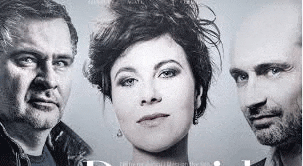 On March 21, the Royal Festival Hall hosted 3 intriguing concerts in one day: Esa-Pekka Salonen conducting the Philharmonia Orchestra with Jennifer Koh and Matthias Goerne, Cellonet and Cellotronicum pre-concert and El Derwid-Sunspots (left) late night post-concert.
On March 21, the Royal Festival Hall hosted 3 intriguing concerts in one day: Esa-Pekka Salonen conducting the Philharmonia Orchestra with Jennifer Koh and Matthias Goerne, Cellonet and Cellotronicum pre-concert and El Derwid-Sunspots (left) late night post-concert.
 The Lutosławski Society in Warsaw, Szczecin Philharmonic and Gamelan Percussion Orchestra created ‘Genius Lutos’, a project to stimulate people with intellectual disabilities to participate in musical culture and to break the stereotypes associated with such disabilities
The Lutosławski Society in Warsaw, Szczecin Philharmonic and Gamelan Percussion Orchestra created ‘Genius Lutos’, a project to stimulate people with intellectual disabilities to participate in musical culture and to break the stereotypes associated with such disabilities
Chicago-based singer Grażyna Auguścik presented ‘Auguścik Sings Lutosławski’ at the Ludwig van Beethoven Easter Festival in March, as always pushing her musical boundaries while also honoring her roots
Lublin hosted two highly original concerts entitled Lutofuzje [Lutofusions], which both straddled the worlds of classical and experimental pop avant-garde and pay homage to Lutosławski during his centenary year, on June 8 and 9
Awards & Honors
A 2012 Grammy Award went to the Warsaw Philharmonic and Antoni Wit for PENDERECKI: Fonogrammi / Horn Concerto / Partita / The Awakening of Jacob / Anaklasis / De natura sonoris No. 1 (NAXOS 8.572482)
 Winners in the “Classical Music” category of the coveted Polityka Passport Award were Magdalena Bojanowicz – cello and Maciej Frąckiewicz – accordion, otherwise known as the TWOgether Duo
Winners in the “Classical Music” category of the coveted Polityka Passport Award were Magdalena Bojanowicz – cello and Maciej Frąckiewicz – accordion, otherwise known as the TWOgether Duo
Winners of the 3rd edition of IMiT’s Composer-in-Residence program:
Filharmonia Gorzowska & Tomasz Jakub Opałka; Prof. Jan Szyrocki Academic Choir at the West Pomeranian University of Technology in Szczecin & Wojciech Błażejczyk; Sinfonia Juventus Polish Orchestra & Ignacy Zalewski
Lutosławski’s Cello Concerto, performed by cellist Frédéric-Olivier Rosselet, won USC Thornton School of Music’s annual Concerto Competition
Winners of the 2013 International Musica Sacra Competition for Composers were 1st prize: Artur Słotwiński (Poland) – Seven Last Words Of Christ, 2nd prize: Douglas Pew (USA) – Kyrie, and 3rd prize: Łukasz Farcinkiewicz (Poland) – Pater noster
Polish-Hungarian pianist Piotr Anderszewski (b. April 4, 1969) was nominated to Gramphone Magazine’s Hall of Fame
Chicago-based singer Grażyna Auguścik presented ‘Auguścik Sings Lutosławski’ at the Ludwig van Beethoven Easter Festival in March, as always pushing her musical boundaries while also honoring her roots.
2013 Fryderyk Awards
Winners in Classical Music:
Artist of the Year: composer Paweł ŁUKASZEWSKI;
Album of the Year: pianist Rafał BLECHACZ – “Debussy / Szymanowski” (Deutsche Grammophon CD 477 9548);
Most Outstanding Recording of Polish Music: pianist Paweł MAZURKIEWICZ and violinist Bartłomiej NIZIOŁ – Karol Lipiński “Works for Violin & Piano” (DUX 0878);
Golden Fryderyk: Jan EKIER
Winners in Jazz:
Artist of the Year: saxophonist Henryk MIŚKIEWICZ;
Album of the Year: Atom String Quartet – “Places” (Kayax);
Debut of the Year: Damas (Piotr DAMASIEWICZ) and Interplay Jazz Duo (pianist Kamil URBAŃSKI and bassist Jędrzej ŁACIAK)
Winners of ‘Gwarancje Kultury’ (TVP Kultura): “Supergwarancje” Category – conductor/composers Krzysztof Penderecki and Esa-Pekka Salonen; “Classical Music” Category – tenor Piotr Beczała
The recipient of the Lutosławski Year Medal was conductor Sir Simon Rattle, presented by the Witold Lustosławki Society at the Berliner Philharmoniker Hall in April
 Agata Zubel’s Not I was chosen for the UNESCO International Rostrum of Composers, one of the most prestigious international accolades a composer can be given
Agata Zubel’s Not I was chosen for the UNESCO International Rostrum of Composers, one of the most prestigious international accolades a composer can be given
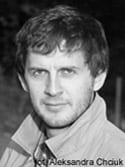 Sighs – Hommage à Fryderyk Chopin by Marcin Stańczyk (b. 1977) won the Toru Takemitsu Award— the world’s most highly regarded annual competition for composers
Sighs – Hommage à Fryderyk Chopin by Marcin Stańczyk (b. 1977) won the Toru Takemitsu Award— the world’s most highly regarded annual competition for composers
Adam Bałdych received the 2013 ECHO Jazz Musikpreis in the International Artist of the Year/Violin category at a ceremony in Hamburg on May 23, 2013
Premieres
E-motions—a new work for accordion, string orchestra and percussion by Hanna Kulenty—received its world premiere on January 19in the Concert Hall of the Wrocław Philharmonic. Performers were Eneasz Kubit, accordion, the Leopoldinum Chamber Orchestra and conductor Ernest Kovacic.
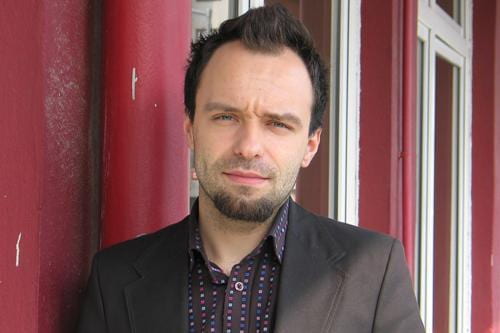 Premiere of Tomasz Jakub Opałka’s D.N.A. Concerto for bass clarinet and instrumental ensemble at the Łańcuch X Festival on February 1. The soloist was the extraordinary bass clarinet player Jadwiga Czarkowska, performing with the Łańcuch Chamber Orchestra and conducted by Wojciech Michniewski.
Premiere of Tomasz Jakub Opałka’s D.N.A. Concerto for bass clarinet and instrumental ensemble at the Łańcuch X Festival on February 1. The soloist was the extraordinary bass clarinet player Jadwiga Czarkowska, performing with the Łańcuch Chamber Orchestra and conducted by Wojciech Michniewski.
World premieres of works by Barbara Kaszuba, Artur Kroschel and Grzegorz Pieniek were given at the Théâtre Dunnois in Paris on February 7 during a program entitled “Polska Muzyka” by Ensemble Aleph.
 Soprano Maria Rozynek and the Polish Radio Amadeus Chamber Orchestra led by Agnieszka Duczmal presented world premieres by six Polish composers of the new generation—Mikołaj Górecki, Justyna Kowalska-Lasoń, Marcel Chyrzyński, Paweł Piotr Pietruszewski, Adam Porębski and Ewa Fabiańska—at the Mickiewicz University Auditorium in Poznań on February 17
Soprano Maria Rozynek and the Polish Radio Amadeus Chamber Orchestra led by Agnieszka Duczmal presented world premieres by six Polish composers of the new generation—Mikołaj Górecki, Justyna Kowalska-Lasoń, Marcel Chyrzyński, Paweł Piotr Pietruszewski, Adam Porębski and Ewa Fabiańska—at the Mickiewicz University Auditorium in Poznań on February 17
The World Premiere of Dariusz Przybylski’s Passio et Mors Domini Nostri Iesu Christi Secundum Ioannem (2013) by PHØNIX16 was held in Warsaw and Poznań on March 8 & 9
Commissioned by the National Audio-Visual Institute [NINA], the World Premiere of Paweł Mykietyn’s Wax Music was held on March 24 at the Ars Musica International Contemporary Music Festival in Brussels.
 The World Premiere of Paweł Szymański’s opera Qudsja Zaher—a truly cross-cultural opera spotlighting the story of an Afghan immigrant as told by Polish musicians and led by a Lithuanian director—was given at the National Opera in Warsaw on April 20.
The World Premiere of Paweł Szymański’s opera Qudsja Zaher—a truly cross-cultural opera spotlighting the story of an Afghan immigrant as told by Polish musicians and led by a Lithuanian director—was given at the National Opera in Warsaw on April 20.
On April 1, Paweł Łukaszewski‘s new work Resurrectio—an oratorio for soprano, tenor, baritone, mixed choir, organ and orchestra—was premiered at the Festa Paschalia in Cologne, Germany, performed by Neues Rheinisches Kammerorchester Köln with Richard Mailänder, cond., and soloists.
The Poznań Musical Spring Festival (April 10-13) featured premieres by young composers, including Barbara Kaszuba, Zbigniew Kozub, Katarzyna Taborowska, Rafał Zapała, Marcel Chyrzyński, and more.
 The Polish National Radio Symphony Orchestra (NOSPR) outdid themselves with this year’s lineup of World Premieres and guests at this year’s 5th Festival of World Premieres: Polish Modern Music—the full list of composers performed includes all of the most prominent Polish composers living today
The Polish National Radio Symphony Orchestra (NOSPR) outdid themselves with this year’s lineup of World Premieres and guests at this year’s 5th Festival of World Premieres: Polish Modern Music—the full list of composers performed includes all of the most prominent Polish composers living today
The Świętokrzyska Philharmonic in Kielce gave the world premiere of Gniew Wiatru [The Wind’s Anger] for saxophone and chamber orchestra by Bartosz Kowalski (b. 1977) with dedicatee Paweł Gusnar in the solo role
The “Gaude Mater” International Festival of Sacred Music in Częstochowa and surrounding cities (May 1-5), Warsaw Musical Encounters (May 11-18) and KODY Festival of Traditional and Avant-garde Music in Lublin (May 10-18) also featured numerous premieres – see the full lists of composers and performers here
 The ForMusic Foundation presented the premiere of Miłosz Bembinow – Vides ut alta and Paweł Przezwański – Pneuma III, both of were were created with financial support of the Ministry of Culture and National Heritage under the “Commissioned Composers” program
The ForMusic Foundation presented the premiere of Miłosz Bembinow – Vides ut alta and Paweł Przezwański – Pneuma III, both of were were created with financial support of the Ministry of Culture and National Heritage under the “Commissioned Composers” program
The ‘P’ Project—comprised of dla głosów i rąk [for voices and hands] by Jagoda Szmytka and Transcryptum by Wojtek Blecharz—was premiered at the Teatr Wielki in Warsaw on May 23 as a part of the Terytoria [Territories] series of contemporary music
Krakow Composers’ Days Festival (May 19-26) celebrated birthday anniversaries of Krzysztof Penderecki, Zbigniew Bujarski and Adam Walaciński, with premieres by Bujarski – Largo for two cellos and viola (2013) and Walaciński – Canzona for cello and percussion (2013), as well as premieres by Michał Gronowicz – Small Objects for soprano, mezzo-soprano, piano and cello (2010), Jakub Polaczyk – Stacja–Station for soprano, alto, piano and toy-piano (2010), Emil Bernard Wojtacki – Nad morzem for soprano, cello and piano (2010), Anna Zawadzka-Gołosz – Prelude and Fugue for piano (2013), Maciej Negrey – Suita seria for two cellos (2013), Juliusz Łuciuk – Omaggio a l’Aquila for soprano, baritone and 10 strings (2013), Jerzy Kaszycki – String Quartet No. 1 (1968), Michał Jakub Papara – To niemożliwe for violin and viola (2006-09), Grzegorz Majka – Kwartet na różne czasy for piano, violin, viola and cello (2012) and Szczepan Tesarowicz – Miniatury for celtic harp (2012-13)
May 17: World Premiere of the opera Strip Tease (based on play by Slawomir Mrożek), written by Dylan Schneider, a doctoral student of Polish composer Marta Ptaszyńska, and performed by eighth blackbird, the Pacifica Quartet and Chicago-based Polish jazz vocalist Grażyna Auguści
PMC News
 On April 6, the PMC presented a day dedicated to of Polish music since 1945 entitled “Sounds from Behind the Iron Curtain: Polish Music after World War II,” with a musicology and digital humanities conference, a concert by Leszek Możdżer, film screenings and a manuscript exhibit focused on Lutosławski
On April 6, the PMC presented a day dedicated to of Polish music since 1945 entitled “Sounds from Behind the Iron Curtain: Polish Music after World War II,” with a musicology and digital humanities conference, a concert by Leszek Możdżer, film screenings and a manuscript exhibit focused on Lutosławski
A Weber grand piano that toured with Paderewski was generously donated by the Paderewski Heritage Committee in Vancouver to the Paderewski Festival in Paso Robles
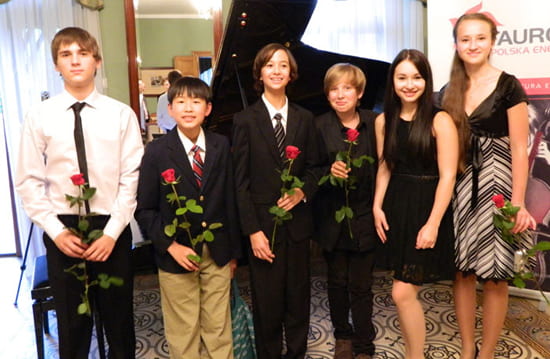 In April, PMC Director Marek Zebrowski and the Upstream II ensemble gave concerts in Los Angeles and Paso Robles to raise funds for the 2013 Paderewski Festival Cultural Exchange held for American, Polish and Ukranian youth in Kąśna Dolna, Poland
In April, PMC Director Marek Zebrowski and the Upstream II ensemble gave concerts in Los Angeles and Paso Robles to raise funds for the 2013 Paderewski Festival Cultural Exchange held for American, Polish and Ukranian youth in Kąśna Dolna, Poland
2013 Participants in the Paderewski Cultural Exchange Program (pictured, L-R): Nazar Serhiyovych Kozlyuk (16 – UKR), Daniel Ha (13 – US), Jack Raventos (13 – US), Michał Niedbała (13 – POL), Paulina Ostrowska (18 – POL), Olha Petrivna Pokhvata (14 – UKR). The Ukranian and Polish students will visit the US during the next Paderewski Festival in Paso Robles (Nov. 5-9, 2014)
Publications
 Among the many eagerly-awaited publications to be released this year were Andrzej Chłopecki’s Przewodnik po muzyce Witolda Lutosławskiego. PostSłowie [A Guide to Witold Lutosławski’s Music—An Afterword]—Chłopecki’s last work—and a 300-page album entitled Lutosławski. 1913-2013, prepared by Elżbieta Markowska for the Lutosławski Society
Among the many eagerly-awaited publications to be released this year were Andrzej Chłopecki’s Przewodnik po muzyce Witolda Lutosławskiego. PostSłowie [A Guide to Witold Lutosławski’s Music—An Afterword]—Chłopecki’s last work—and a 300-page album entitled Lutosławski. 1913-2013, prepared by Elżbieta Markowska for the Lutosławski Society

On February 22, the National Opera-Grand Theater in Warsaw celebrated the book launch of Ewa Podleś. Contralto assoluto, written by Brigitte Cormier and published by PWM, with a concert by Ewa Podleś
20 posthumous choral works by Henryk Mikołaj Górecki were published by PWM and recorded by DUX, based on manuscripts resurrected and edited by Górecki’s son, Mikołaj
News
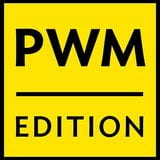 Daniel Cichy, a musicologist and music journalist, was appointed the new Editor-in-Chief of the Polish Music Publishers (PWM) on January 1
Daniel Cichy, a musicologist and music journalist, was appointed the new Editor-in-Chief of the Polish Music Publishers (PWM) on January 1
Polish mezzo-soprano Marta Wryk became a first year member of the Opera Studio of the Opera Cologne
On April 6, Paul Krzywicki gave a lecture entitled “The founding and development of the Curtis Institute of Music: Its faculty and alumni of Polish descent” followed by a concert of current students Piotr Filochowski – violin, Tomasz Kowalczyk – percussion, Lee Jarzembak – tuba, and Susan Nowicki – piano, with works by Chopin, Penderecki, Ptaszyńska and Wieniawski.
 American director Josh Aronson released his film Orchestra of Exiles, shedding light on how violinist Bronisław Huberman started the Palestine Orchestra to save hundreds of Jews from Nazi persecution (see SF Classical Voice review)American director Josh Aronson released his film Orchestra of Exiles, shedding light on how violinist Bronisław Huberman started the Palestine Orchestra to save hundreds of Jews from Nazi persecution (see SF Classical Voice review)
American director Josh Aronson released his film Orchestra of Exiles, shedding light on how violinist Bronisław Huberman started the Palestine Orchestra to save hundreds of Jews from Nazi persecution (see SF Classical Voice review)American director Josh Aronson released his film Orchestra of Exiles, shedding light on how violinist Bronisław Huberman started the Palestine Orchestra to save hundreds of Jews from Nazi persecution (see SF Classical Voice review)
In May a debate erupted about the appointment of Tomasz Cyz as Editor-in-Chief for Ruch Muzyczny, Poland’s venerable bi-weekly devoted to all things musical, as well as the future of the publication in general
 After almost 2 years of construction, the ceremony inaugurating the activities of the European Krzysztof Penderecki Centre for Music in Lusławice was held on May 21, 2013
After almost 2 years of construction, the ceremony inaugurating the activities of the European Krzysztof Penderecki Centre for Music in Lusławice was held on May 21, 2013
Thanks to the endeavors of Professor Zygmunt Krauze, the International Summer Course for Composers in Radziejowice was reactivated, under the auspices of the Fundacja Ogrody Muzyczne
Recordings
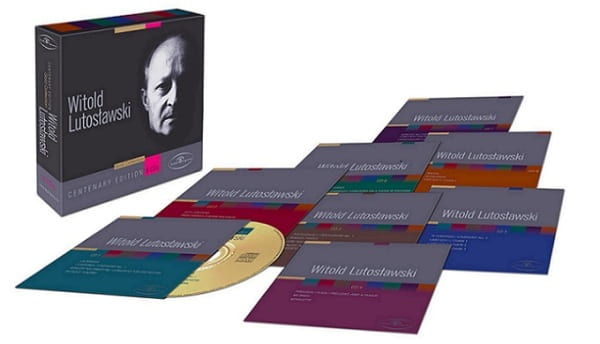
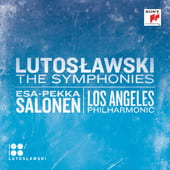 New collected recordings of Lutosławski’s works: Polskie Nagrania Gold Collection and Lutosławski: The Symphonies (Sony). The Sony collection (above, right) has been nominated for a 2013 Grammy
New collected recordings of Lutosławski’s works: Polskie Nagrania Gold Collection and Lutosławski: The Symphonies (Sony). The Sony collection (above, right) has been nominated for a 2013 Grammy
The “Muzyka Polska” series on Chandos continued with Vol. 5—dedicated Karol Szymanowski performed by the BBC Symphony Orchestra (CHSA 5115)
World premiere recording of works by Maciej Małecki including The Dream of Frédéric and Quartets nos. 1-3, performed by the Opium String Quartet (Acte Préalable AP0268) was released
SZYMANOWSKI: The Complete Piano Music was released on Nimbus Records NI1750 (4 CD set), performed by Martin Jones.
Early music ensemble Ars Nova recorded the complete works of Cyprian Bazylik (c.1535-1600) on Travers Records.
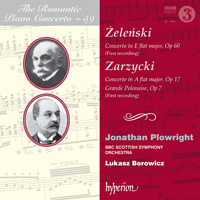 A new collection of rarely-heard piano concertos by Zarzycki and Żeleński (Hyperion CDA67695) was released in April, featuring pianist Jonathan Plowright, the BBC Scottish Symphony Orchestra and conductor Łukasz Borowicz.
A new collection of rarely-heard piano concertos by Zarzycki and Żeleński (Hyperion CDA67695) was released in April, featuring pianist Jonathan Plowright, the BBC Scottish Symphony Orchestra and conductor Łukasz Borowicz.
Pianist, composer and pedagogue Jan Jarczyk released his album Full Circle.
Sinfonia Iuventus Symphony Orchestra recorded the Complete Symphonies of Krzysztof Penderecki (DUX 0897-0901)
Violinist Janusz Wawrowski released new CD entitled Aurora, featuring music for violin and piano by Karol Szymanowski, Maurice Ravel, Eugène Ysaÿe, and Witold Lutosławski, with pianist José Gallardo (EMI Music Poland 12978892)
An all-Polish recording featuring violinist Kinga Augustyn and pianist Efi Hackmey, entitled Polish Violin Music (Naxos 9.70192) was released, including works by Lipiński, Drożdżewski, Zarzycki, Górecki and Lutosławski
Maria Szymanowska: Complete Piano Works featuring pianist and Szymanowska scholar Sławomir P. Dobrzański was released on Acte Prealable (AP 0281-83)
Performances
 On February 27, the Blue Whale jazz club and art gallery in Los Angeles hosted the Shofar Trio in their unique blend of traditional Jewish music with contemporary avant-jazz and rock
On February 27, the Blue Whale jazz club and art gallery in Los Angeles hosted the Shofar Trio in their unique blend of traditional Jewish music with contemporary avant-jazz and rock
Hailed by the Washington Post as “among the most gifted guitarists on the planet,” guitarist Marcin Dylla presented concerts and master classes throughout the US in March – April.
On April 19, the National Philharmonic in Warsaw hosted the 70th anniversary of the Warsaw Ghetto Uprising with Marta Ptaszyńska’s Holocaust Memorial Cantata and John Tavener’s Lament for Jerusalem, performed by: Sinfonia Iuventus Polish Orchestra, the National Philharmonic Choir, Monika Mych-Nowicka – soprano, Dariusz Pietrzykowski – tenor, Adam Kruszewski – baritone, Eliza Kruszczyńska – soprano, Alon HarariI – countertenor and Piotr Gajewski – conductor.
The lauded American Contemporary Music Ensemble (ACME) celebrated music by Weinberg, Górecki and Shostakovich at the Morgan Library and Museum on April 18.
Pianist Rafał Blechacz returned to North America for a tour in April and May, performing Bach, Beethoven, Chopin and Szymanowski.
On May 18 the Chicago Chopin Society hosted a Gala Concert of Songs and Arias by Metropolitan Opera mezzo-soprano Edyta Kulczak with pianist Jarosław Gołembiowski
 “GAUDE, MATER POLONIA – Music from Poland’s Golden Age” was performed by the Newberry Consort and led by Polish-American early music specialist, Tom Zajac. The program included masterworks by: Wacław z Szamotuł, Mikołaj Gomółka, Jan z Lublina, Wojciech Długoraj, Bartłomiej Pękiel, Adam Jarzębski, Mikołaj Zieleński and others
“GAUDE, MATER POLONIA – Music from Poland’s Golden Age” was performed by the Newberry Consort and led by Polish-American early music specialist, Tom Zajac. The program included masterworks by: Wacław z Szamotuł, Mikołaj Gomółka, Jan z Lublina, Wojciech Długoraj, Bartłomiej Pękiel, Adam Jarzębski, Mikołaj Zieleński and others
We Remember…
LOUIS B. APPLETON (1914-2013) – director and husband of Anne Appleton-Strakacz, Paderewski’s goddaughter
STEFAN KUDELSKI (1929-2013) – audio engineer
2014 Anniversaries
2014: Panufnik Centenary
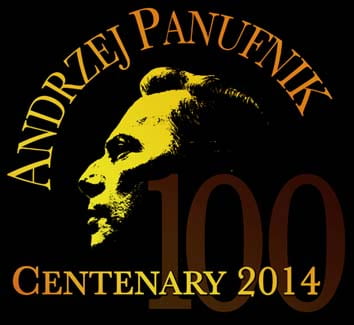 Concerts to celebrate the centenary of composer and conductor Andrzej Panufnik are scheduled around the world in 2014. The centenary of the birth of composer and conductor Andrzej Panufnik is on 24 September 2014, and celebrations are planned by leading orchestras, ensembles and organizations around the world. Panufnik was a witness to the political and social upheavals of the 20th century, living through the Nazi occupation of Poland, the Warsaw Uprising, and the post-war imposition of Soviet Socialist Realism, before making a dramatic escape to the West in 1954. As an exile, he rebuilt his musical life in the UK, while his works were censored in Poland for more than 20 years. He made a momentous return visit to Warsaw after the fall of the Iron Curtain in 1990, a year before his death.
Concerts to celebrate the centenary of composer and conductor Andrzej Panufnik are scheduled around the world in 2014. The centenary of the birth of composer and conductor Andrzej Panufnik is on 24 September 2014, and celebrations are planned by leading orchestras, ensembles and organizations around the world. Panufnik was a witness to the political and social upheavals of the 20th century, living through the Nazi occupation of Poland, the Warsaw Uprising, and the post-war imposition of Soviet Socialist Realism, before making a dramatic escape to the West in 1954. As an exile, he rebuilt his musical life in the UK, while his works were censored in Poland for more than 20 years. He made a momentous return visit to Warsaw after the fall of the Iron Curtain in 1990, a year before his death.
Centenary celebrations for Panufnik around the world are led by events in Poland and the UK, his native country and adoptive homeland for the two halves of his life. Highlights launching the year include symphony performances in February by the London Symphony Orchestra and Warsaw Philharmonic Orchestra, two orchestras that had particularly close associations with the composer.
On 5 February the London Symphony Orchestra and Michael Francis perform Panufnik’s most popular work Sinfonia Sacra together with his experimental and microtonal Lullaby. As an upbeat to the Barbican concert, the Melos Sinfonia performs the Cello Concerto with soloist Michael Petrov and young conductor Oliver Zeffman on 31 January at LSO St Lukes. Vadim Repin is soloist in Panufnik’s Violin Concerto on 27 February with the Royal Liverpool Philharmonic Orchestra conducted by Vasily Petrenko at Philharmonic Hall in Liverpool.
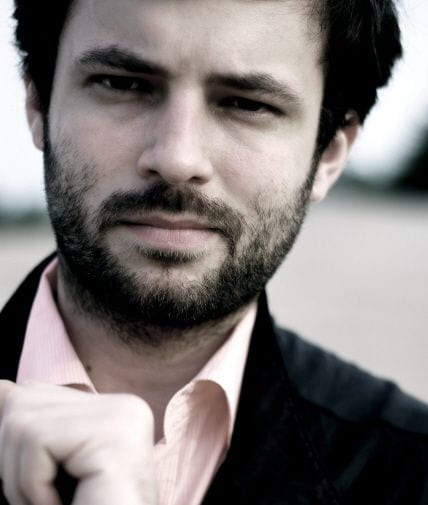 Also in February The Warsaw Philharmonic heads celebrations by orchestras across Poland with two performances of Sinfonia di Sfere conducted by Jacek Kaspszyk on 14 and 15 February at the Philharmonic Hall in Warsaw. Further Warsaw Philharmonic performances of Panufnik in 2014 include the Piano Concerto and Heroic Overture on 23 and 24 May conducted by Łukasz Borowicz (left). The Piano Concerto is performed widely in Poland in coming months, starting with the Sinfonia Juventus Orchestra in Warsaw on 2 February with further performances by orchestras in Kielce, Kraków, Szczecin and Poznań, with pianists Maciej Grzybowski and Ewa Pobłocka.
Also in February The Warsaw Philharmonic heads celebrations by orchestras across Poland with two performances of Sinfonia di Sfere conducted by Jacek Kaspszyk on 14 and 15 February at the Philharmonic Hall in Warsaw. Further Warsaw Philharmonic performances of Panufnik in 2014 include the Piano Concerto and Heroic Overture on 23 and 24 May conducted by Łukasz Borowicz (left). The Piano Concerto is performed widely in Poland in coming months, starting with the Sinfonia Juventus Orchestra in Warsaw on 2 February with further performances by orchestras in Kielce, Kraków, Szczecin and Poznań, with pianists Maciej Grzybowski and Ewa Pobłocka.
Many Panufnik events in the summer and autumn periods are still awaiting announcement, but highlights include Panufnik conferences in Warsaw in September and Kraków in October, led by Beata Bolesławska and Ewa Siemdaj respectively, and the Paderewski Lecture delivered by Lady Camilla Panufnik at the University of Southern California in Los Angeles on 5 October. Also, performances of Symphony No.10 by the London Symphony Orchestra conducted by Antonio Pappano will be held in London and Katowice in October and a Panufnik Day on 30 November at King’s Place in London will feature the Brodsky Quartet. In South America, the São Paulo Symphony gives two performances of the Tragic Overture in November under the baton of Stanisław Skrowaczewski.
Recordings to be released during the centenary year of 2014 include the completion of CPO’s major survey of Panufnik’s symphonies and concertos conducted by Lukasz Borowicz. New recordings of the chamber music are also planned on Chandos and Naxos. Books in preparation include an English translation of Beata Boleslawska’s Panufnik biography from Ashgate Publishing and Panufnik’s autobiography Composing Myself translated into Polish [Panufnik o sobie] from Wydawnictwo Marginesy and in a new English edition supplemented by Panufnik’s other writings on music from Toccata Press.
For a complete list of future Panufnik performances, visit www.boosey.com. If you would like your Panufnik centenary performances listed in the Boosey web calendar please email details to composers.uk@boosey.com.
Visit Boosey’s Panufnik Centenary page or panufnik.com to explore and listen to his music, learn more about the composer, and get news on the centenary.
Panufnik performances in January:
January 7, 2014 | 7:45 pm
Purcell Room, London, United Kingdom
Panufnik: Piano Trio, Minerva Trio
January 10, 2014 | 7:30 pm
Grzegorz Fitelberg Concert Hall, Katowice, Poland
Panufnik: Concerto Festivo
National Polish Radio Symphony Orchestra Katowice / Alexander Liebreich, cond.
January 10, 2014 | 7:00 pm
Philharmonic Hall, Szczecin, Poland
Panufnik, A.: Old Polish Suite; Panufnik, R. – Angels sing!, Lutosławski, W.: 20 Polish Carols
Mieczysław Karłowicz Philharmonic Orchestra of Szczecin / Piotr Sułkowski, cond.
January 26, 2014 | 6:30 pm
Kings Place, London, UK
Panufnik, Andrzej: String Quartet No.3 “Wycinańki”
Tippett Quartet
January 31, 2014 | 7:30 pm
Jerwood Hall, LSO St Luke’s, London, United Kingdom
Panufnik: Cello Concerto (with introduction by the composer’s daughter, Roxanna Panufnik)
Melos Sinfonia / Bartholomew LaFollette, cello / Oliver Zeffman, cond.
January 31, 2014 | 7:00 pm
Philharmonic Hall, Gorzów, Poland
Panufnik, Andrzej: Lullaby
Orkiestra Filharmonii Gorzowskiej / Monika Wolińska, cond.
January 31, 2014 | 7:00 pm
“Semanas Musicales” – Teatro del Lago, Frutillar, Chile
Panufnik, Andrzej: Pentasonata
Marek Bracha, piano
[Source: boosey.com]
2014: Year of Kolberg
 On 6 December 2013, Polish parliament’s lower house, the Sejm, proclaimed 2014 the Year of Oskar Kolberg. Justifying the decision, the Sejm stated:
On 6 December 2013, Polish parliament’s lower house, the Sejm, proclaimed 2014 the Year of Oskar Kolberg. Justifying the decision, the Sejm stated:
Oskar Kolberg’s scientific output and research documenting the folk culture of the 19th century is impressive, both because of the versatility of his interest in folklore and the geography of his research, which included the territories of Poland before her partitions, as well as those of the folk cultures of Ukraine, Belarus, Lithuania, Silesia, South Slavs, Sorbs, Czechs and Slovaks.
Oskar Kolberg published 33 volumes of regional and thematic monographs, along with close to 200 articles on ethnography, folkloristics, linguistics and musicology [this collection is a part of the PMC library holdings]. His legacy remains an all-important resource for today’s artists and culture researchers.
The Minister of Culture and National Heritage of Poland, Bogdan Zdrojewski, has given the Institute of Music and Dance in Warsaw (IMiT) the task of setting up a Kolberg Year celebrations office, and made the institute’s director the Coordinator of the Kolberg Year Celebrations. The minister has also launched a special program under the name “Kolberg 2014 – Promesa,” meant to stimulate the biggest possible number of events of artistic, academic, educational, documentary and promotional character connected with Oskar Kolberg, his output, and traditional culture and art in general, throughout the year. Winners of Promesa grants were announced in December 2013 and can be found here: www.mkidn.gov.pl.
 In association with the Oskar Kolberg Institute, Forum of Traditional Music, Polish Ethnological Society, Open-Air Museum of Rural Architecture in Radom, Polish Radio, Folk Artists Association, Art Institute of the Polish Academy of Sciences, Polish Composers’ Union (ZKP), Fryderyk Chopin Institute in Warsaw, and National Audiovisual Institute, a rich program of concerts, educational, promotional and publishing activities will be put in place in 2014. These include the official inauguration of the Kolberg Year in Przysucha (where Kolberg was born) and Warsaw, a website dedicated to the folklorist and an interactive guide around Kolberg’s Poland, digitalisation and popularisation of Kolberg’s manuscripts and published works, renovation of his gravestone in Rakowicki Cemetery in Kraków, publication of a “Report on traditional music and dance,” along with exhibitions devoted to Oskar Kolberg in the context of the history and culture of the 19th century.
In association with the Oskar Kolberg Institute, Forum of Traditional Music, Polish Ethnological Society, Open-Air Museum of Rural Architecture in Radom, Polish Radio, Folk Artists Association, Art Institute of the Polish Academy of Sciences, Polish Composers’ Union (ZKP), Fryderyk Chopin Institute in Warsaw, and National Audiovisual Institute, a rich program of concerts, educational, promotional and publishing activities will be put in place in 2014. These include the official inauguration of the Kolberg Year in Przysucha (where Kolberg was born) and Warsaw, a website dedicated to the folklorist and an interactive guide around Kolberg’s Poland, digitalisation and popularisation of Kolberg’s manuscripts and published works, renovation of his gravestone in Rakowicki Cemetery in Kraków, publication of a “Report on traditional music and dance,” along with exhibitions devoted to Oskar Kolberg in the context of the history and culture of the 19th century.
At the same time, the Organizers are determined for the Kolberg Year not to focus solely on folk culture, but to be a time when tradition as we experience it in our everyday life is better explored, also in urban communities. Without understanding the roots of our rites, behaviors and gestures we will never fully understand the contemporary world.
You will find regular updates on the Kolberg Year projects on the official website of the celebrations: www.kolberg2014.org.pl.
Also, a special Kolberg Year section has been launched on the website of the Institute of Music and Dance in Warsaw – just click on “Anniversaries” in the top menu to find the most important information on the Kolberg Year celebrations and free downloadable materials. You may also visit the official Facebook page of the celebrations: Rok Kolberga 2014.
The concerts inaugurating the Kolberg Year are taking place on 21 February 2014 in Przysucha and 24 February 2014 in Warsaw.
[Sources: imit.org.pl, kolberg2014.org.pl]
PMC News
Greg Banaszak In Los Angeles
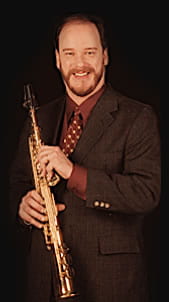 Polish-American saxophonist Greg Banaszak will perform in Los Angeles at the end of January, as he celebrates his 10th year participating in the Grammy Awards. His first event will be a concert and master class on January 23 at the USC Thornton School of Music, sponsored by the Polish Music Center and the TSOM Saxophone Department. Other events include performances at UCLA’s Herb Alpert School of Music Popper Hall (Jan. 24), the 2014 NAMM Show (Jan. 25) and the Grammy Awards (Jan. 26).
Polish-American saxophonist Greg Banaszak will perform in Los Angeles at the end of January, as he celebrates his 10th year participating in the Grammy Awards. His first event will be a concert and master class on January 23 at the USC Thornton School of Music, sponsored by the Polish Music Center and the TSOM Saxophone Department. Other events include performances at UCLA’s Herb Alpert School of Music Popper Hall (Jan. 24), the 2014 NAMM Show (Jan. 25) and the Grammy Awards (Jan. 26).
The program of Mr. Banaszak’s USC performance will include the US premieres of Maciej Małecki’s Elegia and George de Godzinsky’s Autumn Poem, as well as Pedro Itrruladi’s Peqeuna Czarda, Rafael Grimal Olmos’ Concertino pour deux saxophones et Orchestra (piano reduction) and Appointment in Ghana by Jackie McLean. He will be joined by Thornton School of Music student Chika Inoue on Rafael Grimal Olmos’ Concertino and accompanied on piano by Ms. Mitsuko Morikawa. His performance at 6:00 pm will be followed by an open master class sponsored by Dr. Douglas Masek and the Thornton Saxophone Department.
Mr. Banaszak’s tour is generously supported by Dansr/Vandoren Inc and Conn Selmer Inc.
Tour Details:
Thursday, Jan. 23 | 6-9 pm
Concert & Master Class at USC’s Thornton School of Music
Alice and Eleonore Schoenfeld Symphonic Hall, USC, Los Angeles, CA
Directions: music.usc.edu
Admission: FREE
Friday, Jan. 24 | 8 pm
Concert at UCLA’s Herb Alpert School of Music
Popper Hall, UCLA, Los Angeles, CA
Saturday, Jan. 25 | time TBA
Appearance at the 2014 NAMM Show
Anaheim Convention Center, Anaheim, CA
Info: www.namm.org
Sunday, Jan. 26 | 8 pm
Appearance at the Grammy Awards
Staples Center, Los Angeles, CA
Greg Banaszak, one of today’s leading saxophonists, has performed with orchestras and at concert halls throughout the world. He has appeared as concerto soloist and recitalist throughout the United States, Eastern and Western Europe, the Middle East, and Asia, including the countries of France, Germany, Hungary, Poland, Austria, Sweden, Belgium, Egypt, South Korea, the Dominican Republic, Norway, Finland and Japan.
Mr. Banaszak is one of the most sought after orchestral saxophone soloists of his generation. As one of the few saxophonists active in both the classical and jazz mediums, Mr. Banaszak includes a combination of concerto performances, solo and chamber music recitals, and jazz festival appearances. He has presented recitals in such prestigious concert halls as Vienna’s Bösendorfer Concert Hall, the Royal Palace in Warsaw, and New York’s Lincoln Center’s Bruno Walter Hall. He has presented master classes at Austria’s Musik Hochschule, the Cairo Conservatory, Oberlin Conservatory, and the Tanglewood Institute and has served as Orchestral saxophonist for the leading opera orchestras of Warsaw, Berlin, Paris, and Cleveland. Mr Banaszak has been under the baton of such conductors as Gerard Schwarz, Leonard Slatkin, Philippe Entremont and Randy Newman.
Always connected to his Polish heritage, in 2009 Mr. Banaszak was the first saxophone soloist to appear at the 14th annual Henryk Mikołaj Górecki Polish Music Festival, performing with the Vienna Chamber Orchestra; he premiered two concertos dedicated to him by celebrated composer Krzesimir Dębski. Polish composer Paweł Łukaszewski’s Trinity Concerto for Alto Saxophone and String Orchestra was composed for and dedicated to Banaszak.
Mr. Banaszak’s critically acclaimed CDs, “Duo Concertos for Alto Saxophone, Flute, and Orchestra,” “Romances for Saxophone and Orchestra” and “Saxophone Concertos” are available on the Centaur Records label. He has also recorded on the Naxos, Chanson, DUX, Hyperion, MMO and Open Loop labels.
As a member of the National Academy of Arts and Sciences, Mr. Banaszak is a voting member for the annual Grammy Awards ceremony. He serves on the faculties of the Baldwin-Wallace Conservatory, the Cleveland Institute of Music, and Case Western Reserve University. He is a Vandoren Performing Artist, Selmer Saxophone clinician, and Rovner Products consultant, and endorses RS Berkeley instruments as well as Lawton mouthpieces, DeJacques Inc., Pro Tec and Oleg Products. He has performed as saxophonist for the Cleveland Orchestra.
Mr. Banaszak is a B.M. cum laude graduate of the Hartt School of Music. He holds a M.M. degree “with distinction” from the Chopin Academy of Music in Warsaw and an Artist Diploma from the Centre Musical d’Annecy in France. He cites his successful career on having studied with such prominent masters as Vincent Abato, Daniel Deffayet and jazz legend Jackie McLean, as well as David Pituch, and David Schiavone. Hailed as a Saxophonist “Tour de Force” by the New York Times, Mr. Banaszak is represented exclusively by Phoenix Classical Ltd. of Canada.
Recent Donations To The PMC
Maria Peryt, a dedicated PMC supporter and volunteer, donated the following recordings from Warner Classics after a recent meeting in Warsaw:
- Ale filmy! – Złota kolekcja/muzyka filmowa/piosenki z filmów, a 2-CD Pomaton Collection published by Parlophone/Warner
- Krzesimir Dębski—Muzyka filmowa/Piosenki, a 2-CD Pomaton Collection published by Parlophone/Warner
 Polonium—Motion Trio: Music by Lutosławski, Penderecki, Górecki and Kilar, published by Accordeonus/Warner Classics CD
Polonium—Motion Trio: Music by Lutosławski, Penderecki, Górecki and Kilar, published by Accordeonus/Warner Classics CD
These recordings will be added to the PMC library and made available to researchers around the world. Thank you, Maria, for your enduring friendship and generosity!
News
Poles At The La Phil – 2013/2014 Season
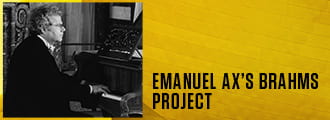 Aficionados of Polish music in Los Angeles will have abundant opportunities to enjoy themselves during the second half of the 2013-14 LA Philharmonic concert season, with a large selection of Polish composers and musicians to choose from.First off, pianist Emmanuel Ax—who was born in Lwów, Poland in 1949—will be featured throughout the next few months at the Los Angeles Phil. For the concerts in his “Ax Brahms Project” series, Ax will be joined by some of today’s greatest musicians on the stage of Disney Hall.
Aficionados of Polish music in Los Angeles will have abundant opportunities to enjoy themselves during the second half of the 2013-14 LA Philharmonic concert season, with a large selection of Polish composers and musicians to choose from.First off, pianist Emmanuel Ax—who was born in Lwów, Poland in 1949—will be featured throughout the next few months at the Los Angeles Phil. For the concerts in his “Ax Brahms Project” series, Ax will be joined by some of today’s greatest musicians on the stage of Disney Hall.
January 17, 18 & 19, 2013| 8:00 & 2:00 pm
AX BRAHMS PROJECT: Ax & Ticciati – Ax and conductor Robin Ticciati perform Brahms Piano Concerto alongside Ligeti’s rarely heard and Melodien
Walt Disney Concert Hall
111 S. Grand Ave., Los Angeles, CA 90012
January 21, 2013 | 8:00 pm
AX BRAHMS PROJECT: Ax & von Otter in Recital – Ax and mezzo-soprano Anne Sofie von Otter explore Brahms songs juxtaposed with newly commissioned pieces by Missy Mazzoli and Nico Muhly
Walt Disney Concert Hall
111 S. Grand Ave., Los Angeles, CA 90012
February 25, 2014 |8:00 pm
AX BRAHMS PROJECT: Ax & Yo-Yo Ma – Ax and cellist Yo-Yo Ma perform premieres by Anders Hillborg and Brett Dean next to Brahms’ two beloved Cello Sonatas
Walt Disney Concert Hall
111 S. Grand Ave., Los Angeles, CA 90012
May 1- 3, 2014 | 8:00 pm
AX BRAHMS PROJECT: Ax & Dudamel – Ax performs the epic Brahms Second Piano Concerto along with the premiere of the new work by Andrew Norman with LA Phil Music Director Gustavo Dudamel on the conductor’s stand
Walt Disney Concert Hall
111 S. Grand Ave., Los Angeles, CA 90012
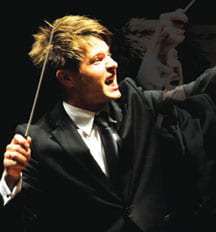 Also in January, young and vibrant Polish conductor Krzysztof Urbański (Music Director – Indianapolis Symphony Orchestra) will come to Disney Hall for a program encompassing the West Coast premiere of Wojciech Kilar’s Krzesany as well as works by Chopin and Prokofiev.
Also in January, young and vibrant Polish conductor Krzysztof Urbański (Music Director – Indianapolis Symphony Orchestra) will come to Disney Hall for a program encompassing the West Coast premiere of Wojciech Kilar’s Krzesany as well as works by Chopin and Prokofiev.
January 24, 25 & 26, 2013 | 8:00 & 2:00 pm
KRZYSZTOF URBAŃSKI CONDUCTS – Urbański conducts Kilar: Krzesany (Fri & Sat only), Chopin: Piano Concerto No. 2 and Prokofiev: Symphony No. 5
Walt Disney Concert Hall
111 S. Grand Ave., Los Angeles, CA 90012
Finally, in April USC Thornton School of Music professor and international violin phenomenon Midori Goto will perform Lutosławski’s Partita on her April 23 recital at Disney Hall.
April 23, 2014 | 8:00 pm
WITOLD LUTOSŁAWSKI: Midori in Recital – Midori will perform a varied program from Lutosławski to Beethoven with pianist Özgür Aydin
Walt Disney Concert Hall
111 S. Grand Ave., Los Angeles, CA 90012
Additionally, Los Angeles audiences can hear Tchaikovsky’s ‘Polish’ Symphony No. 3 on February 24 with the Simon Bolivar Symphony under the baton of conductor Gustavo Dudamel. Enjoy the rest of the season!
[Sources: Gary Fitelberg, laphil.com]
Debating The Future Of Ruch Muzyczny
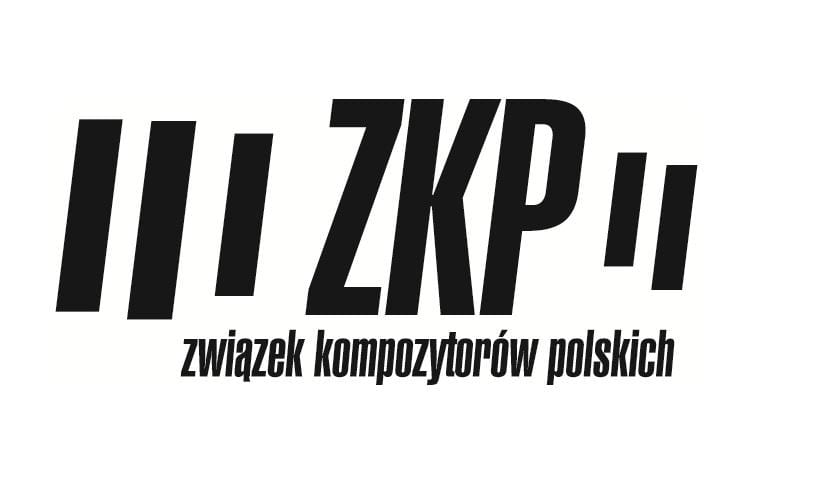 On December 19 the Polish Composers’ Society (ZKP) published a communiqué of its Executive Committee reacting to the interview given by Grzegorz Gauden for Radio 2 program “Tygiel Kultury” [The Crucible of Culture] on December 16. The only periodical in Poland devoted to classical music, Ruch Muzyczny is currently published by the Instytut Książki, which is directed by Mr. Gauden.
On December 19 the Polish Composers’ Society (ZKP) published a communiqué of its Executive Committee reacting to the interview given by Grzegorz Gauden for Radio 2 program “Tygiel Kultury” [The Crucible of Culture] on December 16. The only periodical in Poland devoted to classical music, Ruch Muzyczny is currently published by the Instytut Książki, which is directed by Mr. Gauden.
In his radio interview, Mr. Gauden is quoted saying, “I cannot imagine the situation whereby RuchMuzyczny would serve a given association or organization. […] I’m ready to discuss the subject of RuchMuzyczny’s future direction, but no particular association should appoint the Ruch Muzyczny’s Editor-in-Chief.”
The Polish Composers’ Society’s reply to Mr. Gauden’s statements acknowledges Ruch Muzyczny’s ties to the Society, but also stresses its independence from various artistic and creative circles. It also notes that although Ruch Muzyczny was published for many years by the Ministry of Culture and National Heritage, it also received substantial support from independent, non-governmental sources that gave it a particularly individual and civic character. Since Mr. Gauden is the publisher of Ruch Muzyczny, the Polish Composers’ Society recognizes his concerns for the periodical, but adds that the Society’s suggestion for restructuring the publication were transmitted on numerous occasions in person and in writing during meetings with Mr. Gauden and Minister Bogdan Zdrojewski.
The Polish Composers’ Society communiqué further states:
We hold that Ruch Muzyczny will better serve the needs of its readers when it will have closer ties to a wide range of societies of creative, artistic and musical nature. […] We are pleased that the public debate about this publication proves the need for its continued existence and that voices defending the magazine rose not only from its natural supporters—Polish Composers’ Society, Society of Polish Artists and Musicians, Polish Music Council—but also from the Polish Radio journalists, Glissando Magazine reporters, different university communities, various music organizers, as well as leading artists and bloggers. Ruch Muzyczny is important for all these associations and organizations. […] These associations and organizations are able to create a modern and viable periodical devoted to broadly-drawn topics of music and its cultural contexts. Such a periodical should continue to exist or, if it’s abolished, another similar publication should take its place. We believe, however, that Ruch Muzyczny can continue to be such a publication.
[…] Returning to Mr. Gauden’s statement, we stress that associations or organizations do not wish to appoint the Editor-in-Chief for Ruch Muzyczny. They would like, however, to weigh in with their opinions before the decisions are made, both because of the procedural requirements and the principle of common courtesy. We would like to see the current situation of the magazine as a way station on the road to improving the mechanism of its publication. In the ensuing debate we must show concern and responsibility, express ourselves in measured terms, and consider our decisions and emotions. Such an approach applies to us just as it does to musical and cultural associations, the editorial staff of Ruch Muzyczny, and its current Editor and Publisher. A new chapter in this publication, on par with its former tradition and reflecting the condition of musical culture in Poland, could come to pass. Let’s give ourselves a chance to succeed.
As we drafted this statement, the news of continued layoffs among Ruch Muzyczny’s editorial staff had reached us. Although formally these decisions did not require any consultation, they prove the inadequacy of the existing structural framework in relation to the needs and the character of the publication. The process of annihilation of the editorial board complicates the cooperative way forward described above, just as it demonstrates the need to take that very approach in the future.
[Source: zkp.org.pl]
New PWM Publication: Generation ‘70
There is one common attribute in the music of the generation ’70
– this is the freedom to choose their own artistic path.—Daniel Cichy, PWM
Polish Music Publishers (PWM) have published a new booklet dedicated to the young composers of “generation ‘70” that are represented in their catalog. The composers explored are: Sławomir Kupczak, Marcel Chyrzyński, Agata Zubel, Aleksander Nowak, Wojciech Ziemowit Zych, Paweł Mykietyn, Maciej Jabłoński, Wojciech Widłak, Mikołaj Górecki, and Maciej Zieliński.
The booklet gives short descriptions of each of the composers’ styles as well as a listing of their selected works based on category of ensemble. The booklet can be viewed online in several ways, via pwm.com.pl (PDF) or issuu.com.
[Sources: press release, generation70.pl, pwm.com.pl]
Nck’s Polish Music History Series Issues E-books
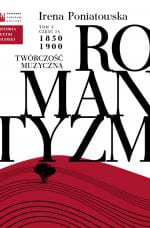 The Narodowe Centrum Kultury [National Cultural Center] introduces the first two eBooks to be issued in their series about Polish Music History, which is based on the publication of one of the most important Polish book series on the history of music: the Sutkowski Edition Warsaw. Both parts of the second volume of the “Romanticism” series, authored by Irena Poniatowska (Vol. V, part 2a.) and Elżbieta Szczepanski-Lange (Vol. V, part 2b.), can now be downloaded for free from Nexto and the NCKiosk store.
The Narodowe Centrum Kultury [National Cultural Center] introduces the first two eBooks to be issued in their series about Polish Music History, which is based on the publication of one of the most important Polish book series on the history of music: the Sutkowski Edition Warsaw. Both parts of the second volume of the “Romanticism” series, authored by Irena Poniatowska (Vol. V, part 2a.) and Elżbieta Szczepanski-Lange (Vol. V, part 2b.), can now be downloaded for free from Nexto and the NCKiosk store.
The NCK’s Polish Music History series consists of 12 volumes discussing each era of music history: the Middle Ages, Renaissance, Baroque, Classicism, Romanticism, the period between Romanticism and Modernity and Modernity. All books included in the publication were written by eminent musicologists who are experts in the specific periods to which ach volume is devoted. The authors of the individual volumes are: Jerzy Morawski, Katarzyna Morawska, Barbara Przybyszewska-Jarmińska, Alina Nowak-Romanowicz, Irena Poniatowska, Elżbieta Szczepańska-Lange and Krzysztof Baculewski. The last three volumes of the series will be issued as hard copies by the end of 2013 and will be written by the experts of Polish music history—Zofia Helman, Zofia Chechlińska and Alina Mądry.
This unique book series comprehensively and scientifically describes the development and the history of Polish music against the background of European culture, from the beginning of Polish statehood until the 21st century. The entire publication will consist of approximately 6500 pages.
A. Golka Plays Lutosławski At Pepperdine
“In Golka’s hands, the work was stunning, a revelation of the composer’s soul”
—Chicago Sun-Times
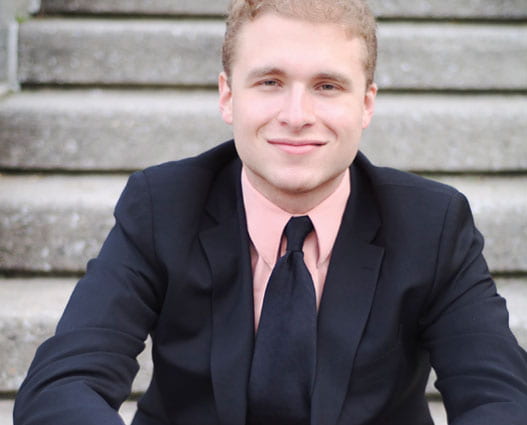 With his “brilliant technique and real emotional depth” (The Washington Post), Polish-Amerian pianist Adam Golka has won widespread critical and popular acclaim in a relatively short time. He has garnered international prizes, including the 2008 Gilmore Young Artist Award, first prize in the 2003 China Shanghai International Piano Competition, and the 2009 Max I. Allen Classical Fellowship Award of the American Pianists Association.
With his “brilliant technique and real emotional depth” (The Washington Post), Polish-Amerian pianist Adam Golka has won widespread critical and popular acclaim in a relatively short time. He has garnered international prizes, including the 2008 Gilmore Young Artist Award, first prize in the 2003 China Shanghai International Piano Competition, and the 2009 Max I. Allen Classical Fellowship Award of the American Pianists Association.
The program of Golka’s afternoon concert in Los Angeles on January 12 is—Haydn: Capriccio in G Major, Hob. XVII: 1; Lutosławski: Folk Melodies (1945); Bartók: Two Romanian Dances; Beethoven: Sonata No. 31 in A-flat Major, Op.110; Michael Brown: Folk Variations (2013); Brahms: Sonata No. 1 in C Major, Op. 1.
Sunday, January 12, 2014 | 2:00 pm
Pianist Adam Golka Performs at Pepperdine U.
Pepperdine University, Center for the Arts, Raitt Recital Hall
24255 Pacific Coast Highway, Malibu, CA 90263
Info: arts.pepperdine.edu
Admission: $25
T. Golka Conducts CA Symphony
 Guest conductor Maestro Tomasz Golka, Music Director of the Riverside County Philharmonic and the older brother of pianist in the article above, will make his Bay area debut when he conducts the California Symphony‘s next program, entitled “Anniversaries and Tributes.” This concert promises to be a special one, featuring contemporary composer Shafer Mahoney’s Triple Point, the maestro’s tribute arrangement of Bach’s Passacaglia and Fugue in C minor, and a celebration of the 150th anniversary of Richard Strauss’ birth with Horn Concerto No. 1, featuring San Francisco Symphony Principal Horn Robert Ward. This impressive concert will culminate with Elgar’s towering masterpiece, Enigma Variations.
Guest conductor Maestro Tomasz Golka, Music Director of the Riverside County Philharmonic and the older brother of pianist in the article above, will make his Bay area debut when he conducts the California Symphony‘s next program, entitled “Anniversaries and Tributes.” This concert promises to be a special one, featuring contemporary composer Shafer Mahoney’s Triple Point, the maestro’s tribute arrangement of Bach’s Passacaglia and Fugue in C minor, and a celebration of the 150th anniversary of Richard Strauss’ birth with Horn Concerto No. 1, featuring San Francisco Symphony Principal Horn Robert Ward. This impressive concert will culminate with Elgar’s towering masterpiece, Enigma Variations.
Sunday, January 19, 2014 | 4:00pm
Tomasz Golka conducts the California Symphony
Lesher Center for the Arts, Walnut Creek, CA
Info & tickets: www.lesherartscenter.org
[Sources: press release, goldstar.com]
Chopin Competition In Hartford, CT
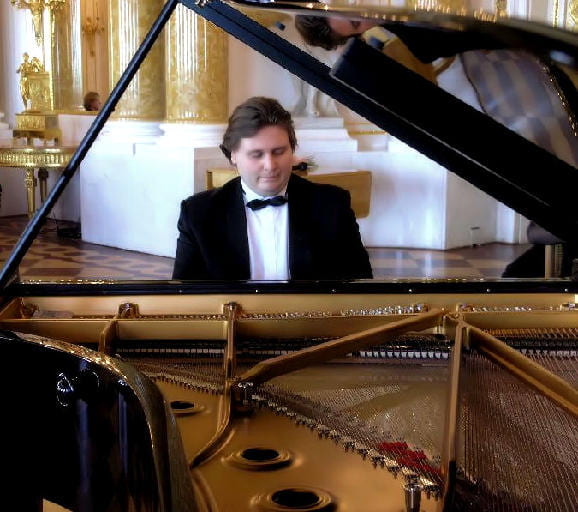 The fifth edition of the Chopin International Piano Competition in Hartford, CT will be held at the Polish National Home in Hartford, CT from March 6 to 9, 2014. All winners including honorable mentions and special prizes must perform at the winners recital scheduled on Sunday, March 9, 2014. The competition will also include a master class of internationally acclaimed concert pianist and professor Krystian Tkaczewski (left) on March 9—Tkaczewski serves as Artistic Director and President of Jury of this Competition.
The fifth edition of the Chopin International Piano Competition in Hartford, CT will be held at the Polish National Home in Hartford, CT from March 6 to 9, 2014. All winners including honorable mentions and special prizes must perform at the winners recital scheduled on Sunday, March 9, 2014. The competition will also include a master class of internationally acclaimed concert pianist and professor Krystian Tkaczewski (left) on March 9—Tkaczewski serves as Artistic Director and President of Jury of this Competition.
The Chopin International Piano Competition is open to pianists of any nationality. It is held in three age categories: “Junior” Category – up 12 years old, “Young Artist” Category – up 17 years old, “Professional” Category – no age limit. All competition performances will open for the public. The jury reserves the right to not award all prizes. The decision of the jury is final and is not subject to challenge or any review.
For details on requirements and repertoire, visit www.chopincompetition.org.
The following required application documents must be received by February 1, 2014:
- Filled Application Form (capital letters) – see website
- Proof of age (I.D., Passport, etc.)
- CV or Biography
- Proof of payment of application fee (non-refundable) 5. (optional) request for transcript of comments by judges (add extra 40 USD)
Payment of the non-refundable application fee (Category “Junior” – 100 USD, Category “Young Artist” – 110 USD, Category “Professional”- 120 USD) must be made using one of the following methods: Personal check payable to “Chopin International Piano Competition”; Money order; or Western Union transfer for overseas competitors.
Competition address:
Chopin International Piano Competition
66 Foxcroft Rd.
West Hartford, CT 06119 USA
If you have any questions, please email: hartfordchopincompetiton@gmail.com
[Sources: press release, chopincompetition.org]
Pietrzak’s ‘Potęga Śmiechu’ In Orange
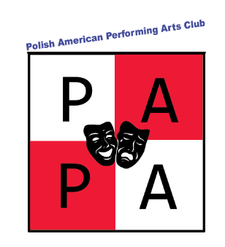 The Polish American Club Performing Arts (PAPA Club) of Orange, CA is presenting an extraordinary evening cabaret. The guest is well-known singer and actor Jan Pietrzak with his new cabaret program, “Potęga Śmiechu” [The power of laughter].
The Polish American Club Performing Arts (PAPA Club) of Orange, CA is presenting an extraordinary evening cabaret. The guest is well-known singer and actor Jan Pietrzak with his new cabaret program, “Potęga Śmiechu” [The power of laughter].
Saturday, Jan 11, 2014 | 7:00pm
“Potega Smiechu” Cabaret with Jan Pietrzak
Village Theater of Orange
1140 N. Tustin St., Orange, CA 92867
(714) 744-4263
Info & Tickets: www.eventbrite.com
[Sources: PoloniaSF Yahoo Group press release, events.charlotteobserver.com]
Awards
Blechacz: 2014 Gilmore Artist Award & More
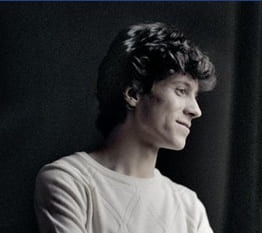 Polish pianist Rafał Blechacz has been chosen for the 2014 edition of one of the music world’s most prestigious honors: the Gilmore Artist Award. Given every four years to one international pianist of any age and nationality, recipients are chosen following a rigorous selection process carried out worldwide by an anonymous, six-member committee.
Polish pianist Rafał Blechacz has been chosen for the 2014 edition of one of the music world’s most prestigious honors: the Gilmore Artist Award. Given every four years to one international pianist of any age and nationality, recipients are chosen following a rigorous selection process carried out worldwide by an anonymous, six-member committee.
According to the New York Times article announcing the decision:
The award, which will be announced officially on Wednesday, is often thought of as the music world’s version of the MacArthur Foundation’s “genius” grants: a prestigious prize that cannot be applied for or sought. The long confidential selection process aims to judge pianists over a sustained period of time, in marked contrast to hundreds of other sink-or-swim piano competitions that can resemble beauty pageants or reality shows.
With the award, Mr. Blechacz, 28, will join an elite and varied group of recipients, who include Kirill Gerstein, Ingrid Fliter, Piotr Anderszewski and Leif Ove Andsnes. He will receive $50,000 in cash, and $250,000 will be made available to help him foster his career. (Past recipients have used that money to buy better pianos, commission new music, subsidize recordings and take sabbaticals to learn new repertoire.)
In celebration of the news, WQXR hosts an exclusive, sold-out evening of live performance and interview with the 2014 Gilmore Artist at The Greene Space in New York on January 8 at 5:30 pm.
 In other impressive news for Blechacz, at the end of November 2013 his recording of Frédéric Chopin‘s Polonaises (Deutsche Grammophon, 2013) was chosen for the coveted Preis der Deutschen Schallplattenkritik – Bestenliste in the Keyboard Music category. This coveted Prize for CDs and DVDs is given out quarterly by the German Record Critics’ Association, which has a strict policy of keeping its decisions untouched by commercial interests. The approximately 145 member jury consists of music critics, writers, musicologists and editors from Germany, Austria, and Switzerland, who judge in their category of particular competence and are not paid in any way to make their selections. Jury members are not allowed to judge any production in which they were involved.
In other impressive news for Blechacz, at the end of November 2013 his recording of Frédéric Chopin‘s Polonaises (Deutsche Grammophon, 2013) was chosen for the coveted Preis der Deutschen Schallplattenkritik – Bestenliste in the Keyboard Music category. This coveted Prize for CDs and DVDs is given out quarterly by the German Record Critics’ Association, which has a strict policy of keeping its decisions untouched by commercial interests. The approximately 145 member jury consists of music critics, writers, musicologists and editors from Germany, Austria, and Switzerland, who judge in their category of particular competence and are not paid in any way to make their selections. Jury members are not allowed to judge any production in which they were involved.
Wednesday, January 8, 2014 | 5:30 pm
Gilmore Award Performance & Interview with Rafał Blechacz
The Greene Space, 44 Charlton Street, New York, NY
Info & livestream: www.thegreenespace.org & www.wqxr.org
[Sources: nytimes.com, thegreenespace.org, wqxr.org, blechacz.net]
Gloria Artis Medals For Prominent Polish Musicians
Conferred by the Minister of Culture and National Heritage, the Gloria Artis medal recognizes exceptional achievements and contributions to Polish culture. On two separate occasions during the month of December 2013, Minister Bogdan Zdrojewski and Deputy Minister Małgorzata Omilanowska presided over specially scheduled ceremonies at the Ministry’s headquarters in Warsaw.
 During the December 11 ceremony, a total of eleven Gloria Artis medals were awarded to a variety of actors, musicians and literary figures. Opening the festive meeting, Minister Zdrojewski thanked the recipients for their “truly great and varied artistic output of many years that had built the strength and position of Polish culture in the world.” The highest rank, the Golden Gloria Artis medals, were given to the following musicians: Adam Natanek, conductor and educator, long associated with the Lublin Philharmonic, Rzeszów Philharmonic and the Łańcut Music Festival; Zbigniew Preisner (above), composer of music for such well-known films as Decalogue, The Three Colors, The Double Life ofVeronique, and Oliver, Oliver, among others; and Joanna Wnuk-Nazarowa, a conductor and Program Director of the National Radio Symphony Orchestra in Katowice, as well as professor at the Kraków Music Academy and former Minister of Culture during the years 1997-1999.
During the December 11 ceremony, a total of eleven Gloria Artis medals were awarded to a variety of actors, musicians and literary figures. Opening the festive meeting, Minister Zdrojewski thanked the recipients for their “truly great and varied artistic output of many years that had built the strength and position of Polish culture in the world.” The highest rank, the Golden Gloria Artis medals, were given to the following musicians: Adam Natanek, conductor and educator, long associated with the Lublin Philharmonic, Rzeszów Philharmonic and the Łańcut Music Festival; Zbigniew Preisner (above), composer of music for such well-known films as Decalogue, The Three Colors, The Double Life ofVeronique, and Oliver, Oliver, among others; and Joanna Wnuk-Nazarowa, a conductor and Program Director of the National Radio Symphony Orchestra in Katowice, as well as professor at the Kraków Music Academy and former Minister of Culture during the years 1997-1999.
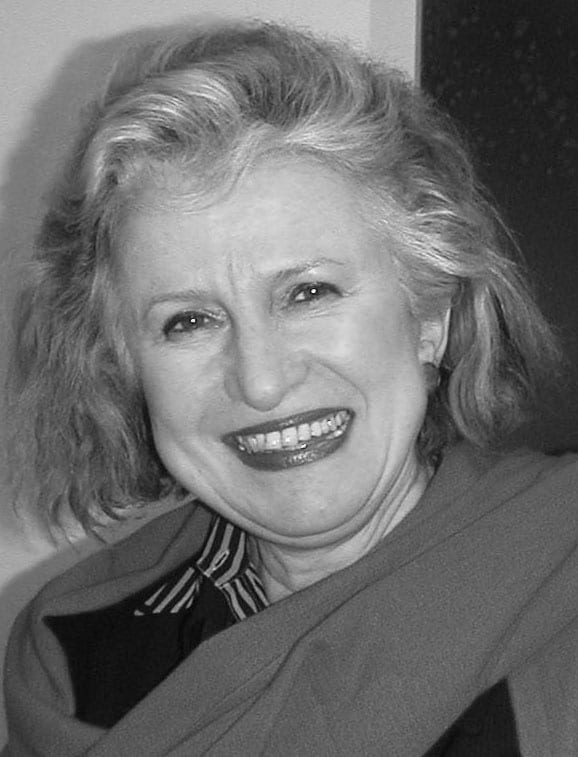 On December 2, composer Joanna Bruzdowicz received the Silver Gloria Artis at the Ministry in Warsaw. “Your achievements are very well known in Poland and the medal you receive today is a natural outcome of everything you have done for the Polish culture,” said Deputy Minister Małgorzata Omilanowska during the ceremony. On the same day, Bruzdowicz’s composition From the Fever World, which was commissioned by the Ministry of Culture and National Heritage, was performed at a special concert organized by the Polish Composers’ Union.
On December 2, composer Joanna Bruzdowicz received the Silver Gloria Artis at the Ministry in Warsaw. “Your achievements are very well known in Poland and the medal you receive today is a natural outcome of everything you have done for the Polish culture,” said Deputy Minister Małgorzata Omilanowska during the ceremony. On the same day, Bruzdowicz’s composition From the Fever World, which was commissioned by the Ministry of Culture and National Heritage, was performed at a special concert organized by the Polish Composers’ Union.
[Sources: mkidn.gov.pl, zkp.org.pl, mkidn.gov.pl]
Grammy Nomination For LA Phil & Lutosławski
 The recording of Lutosławski’s Symphony No. 1, released by Sony Classical on the album Lutosławski: The Symphonies, has been nominated for the 56th Annual Grammy Award in the category of “Best Orchestral Performance.” The Grammy Awards ceremony will be held on January 26, 2014 at the Staples Center in Los Angeles and will be broadcast in the US on CBS at 8:00 p.m. EST/PST.
The recording of Lutosławski’s Symphony No. 1, released by Sony Classical on the album Lutosławski: The Symphonies, has been nominated for the 56th Annual Grammy Award in the category of “Best Orchestral Performance.” The Grammy Awards ceremony will be held on January 26, 2014 at the Staples Center in Los Angeles and will be broadcast in the US on CBS at 8:00 p.m. EST/PST.
For this historic live recording made in November 2012, conductor laureate Esa-Pekka Salonen led the Los Angeles Philharmonic, who in 1989 gave the West Coast premiere of the work with the composer on the conductor’s stand. The World Premiere of the First Symphony was given by Grzegorz Fitelberg conducting the Polish Radio Orchestra in Katowice on April 6, 1948, and repeated in Kraków on June 15, however the work was banned in August 1949 by Poland’s new Stalin-controlled Communist government and was not performed again until 1959.
The US recording industry’s most prestigious award, the Grammy Awards are presented annually by The Recording Academy and are decided by the Academy’s voting membership to honor excellence in the recording arts and sciences. It is truly a peer honor, awarded by and to artists and technical professionals based on artistic or technical achievement, not sales or chart positions.
[Sources: polmic.pl, laphil.com, grammy.org]
2013 Nominations: ‘Polityka Passports’
T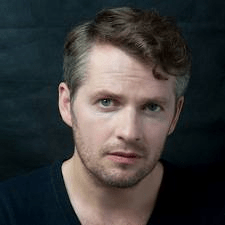 he popular weekly magazine Polityka has announced the nominations for its annual “Passport Award”. The 2013 candidates for this coveted cultural prize are from the fields of film, literature, popular music, classical music, theatre, and visual arts.
he popular weekly magazine Polityka has announced the nominations for its annual “Passport Award”. The 2013 candidates for this coveted cultural prize are from the fields of film, literature, popular music, classical music, theatre, and visual arts.
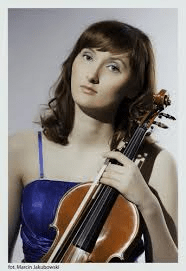 In the classical music category the nominees are: vocalist Karol Kozłowski, who has appeared with the National Opera, the Baltic Opera, and on a variety of concert stages; violist Katarzyna Budnik-Gałązka, a soloist and chamber musician who toured Poland and Europe; and the Apollon Musagète Quartet that, since 2006, had appeared at New York’s Carnegie Hall, Berlin Philharmonic, London’s Wigmore Hall, and Tonhalle in Zurich, and recorded works by Lutosławski, Górecki and Penderecki.
In the classical music category the nominees are: vocalist Karol Kozłowski, who has appeared with the National Opera, the Baltic Opera, and on a variety of concert stages; violist Katarzyna Budnik-Gałązka, a soloist and chamber musician who toured Poland and Europe; and the Apollon Musagète Quartet that, since 2006, had appeared at New York’s Carnegie Hall, Berlin Philharmonic, London’s Wigmore Hall, and Tonhalle in Zurich, and recorded works by Lutosławski, Górecki and Penderecki.
[Sources: polmic.pl, polityka.pl]
Komeda Jazz Competition
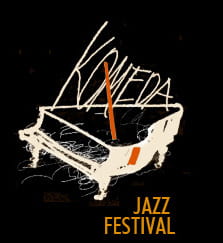 The 8th Krzysztof Komeda Composers’ Competition was held in Słupsk, Poland on November 13, 2013. The competition is addressed to young artists for whom jazz is a common value uniting sundry nations in the experience of music. Its aim is to promote the work of young composers (max. age: 35) and compositions which have never been published, recorded or performed publicly. This is the only such competition in Poland devoted to jazz works and composers inspired by the jazz phenomenon.
The 8th Krzysztof Komeda Composers’ Competition was held in Słupsk, Poland on November 13, 2013. The competition is addressed to young artists for whom jazz is a common value uniting sundry nations in the experience of music. Its aim is to promote the work of young composers (max. age: 35) and compositions which have never been published, recorded or performed publicly. This is the only such competition in Poland devoted to jazz works and composers inspired by the jazz phenomenon.
Entries are judged by a jury of distinguished artists and composers. The 2013 Jury—comprised of composers Prof. Ed Partyka (Chairman), Prof. Leszek Kułakowski, and Prof. Andrzej Zubek—certified that fifty-four entrants submitted works to the 8th Competition and that, in total, eighty-four works were submitted in the two categories. The Jury would like to emphasize the high standard of the entries. Having eliminated works that failed to meet the competition’s conditions and analyzing those which qualified, the Jury resolved to award the following prizes:
In the OPEN category:
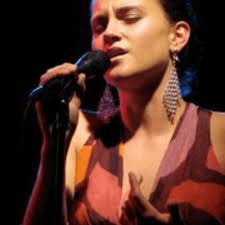 1st Prize (PLN 5,500): Julia Zuzanna Sokołowska (USA – pictured at right) for her composition entitled All at Once
1st Prize (PLN 5,500): Julia Zuzanna Sokołowska (USA – pictured at right) for her composition entitled All at Once- 2nd Prize (PLN 2,500): Michał Ciesielski (Poland) for his composition entitled Jazz Concerto for Piano and Big Band
- Honorable mentions: an award of PLN 1,000 to Štěpánka Balcarová (Czech Republic) for her composition entitled Song for Children; an award of PLN 1,000 to Kamil Kosecki (Poland) for his composition entitled Dislocation of Time in a Mysterious Place;
In the Jazz Themes category:
- 1st Prize (PLN 3,500): Daniel Nosewicz (Poland) for his composition entitled Acid Theme
- 2nd Prize (shared ex æquo – PLN 4,000): Sebastian Faust (Germany) for his composition entitled Lost and Patryk Walczak (Poland) for his composition entitled The Way
- 3rd Prize (PLN 1,000): Maciej Lilewski (Poland) for his composition entitled The Bird’s Reflection
The prizes are funded by the Ministry of Culture and National Heritage, the National Culture Centre, under the Centre’s Culture – Interventions grant program, the Supporting Culture Fund established and administered by the ZAiKS Authors’ Association, and the Promotional Fund founded and run by the STOART Performing Artists’ Union.
[Source: komedajazz.com]
Discography
Łukaszewski Series On DUX Reviewed In Gramophone
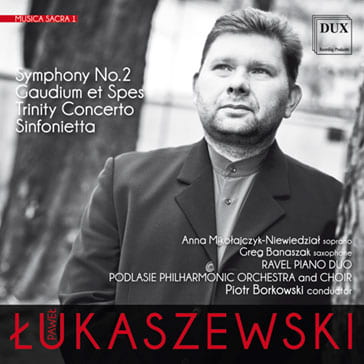 ŁUKASZEWSKI: Musica Sacra 1
ŁUKASZEWSKI: Musica Sacra 1
Paweł Łukaszewski (b. 1968): Gaudium et Spes for soprano, choir and symphonic orchestra (1997)*; Sinfonietta for string orchestra (2004)*; Trinity concerto for alto saxophone and string orchestra (2006)*; Adagietto for string orchestra (2009)*; Symphony No.2 “Festinemus amare homines“ for soprano, two pianos, choir and symphonic orchestra (2005, text: Father Jan Twardowski)*
Podlasie Philharmonic Orchestra and Choir in Białystok, Piotr Borkowski – cond.; Anna Mikołajczyk – soprano; Greg Banaszak – alto saxophone; Ravel Piano Duo: Agnieszka Kozło, Katarzyna Ewa Sokołowska
DUX 0356
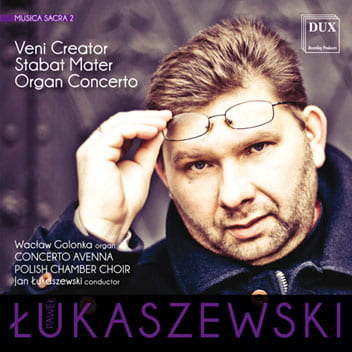 ŁUKASZEWSKI: Musica Sacra 2
ŁUKASZEWSKI: Musica Sacra 2
Psalmus 102 for a cappella mixed choir (2003)*; Souvenir I for organ (1999)*; Stabat Mater for three a cappella female choirs (1993)*; Offertorium for organ (2004); Hommàge a Edith Stein for a cappella mixed choir (2002); Concerto for organ and strings (1996); Veni Creator for two a cappella mixed choirs (2004); Icon for organ (2010)
Polish Chamber Choir; Schola Cantorum Gedanensis; Schola Cantorum Bialostociensis; Concerto Avenna; Jan Bartłomiej Bokszczanin, Jakub Garbacz, Wacław Golonka and Michał Markuszewski – organ; Jan Łukaszewski and Violetta Bielecka – cond.
DUX 0367
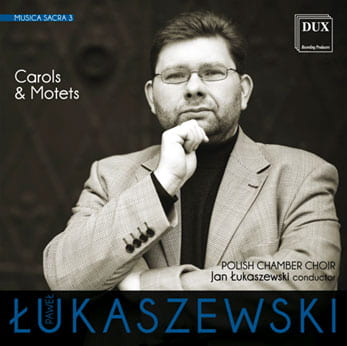 ŁUKASZEWSKI: Musica Sacra 3, Carols & Motets
ŁUKASZEWSKI: Musica Sacra 3, Carols & Motets
Angelus Domini for mixed choir (1992); Three Carols for mixed choir (1993, arr.)*; Three Carols for mixed choir (1992-99)*; Four Carols for female choir (1998, arr.)*; Three Carols for mixed choir (2001), words: Bożena Fabiani*; Two Christmas Motets for a cappella female choir (2000)*; Five Carols for a cappella female choir (2001, arr.)*; Candlemass Prayer for a cappella mixed choir (1988, lyrics: Kazimiera Iłłakowiczówna)*
Polish Chamber Choir; Schola Cantorum Gedanensis; Jan Łukaszewski– cond.
DUX 0440
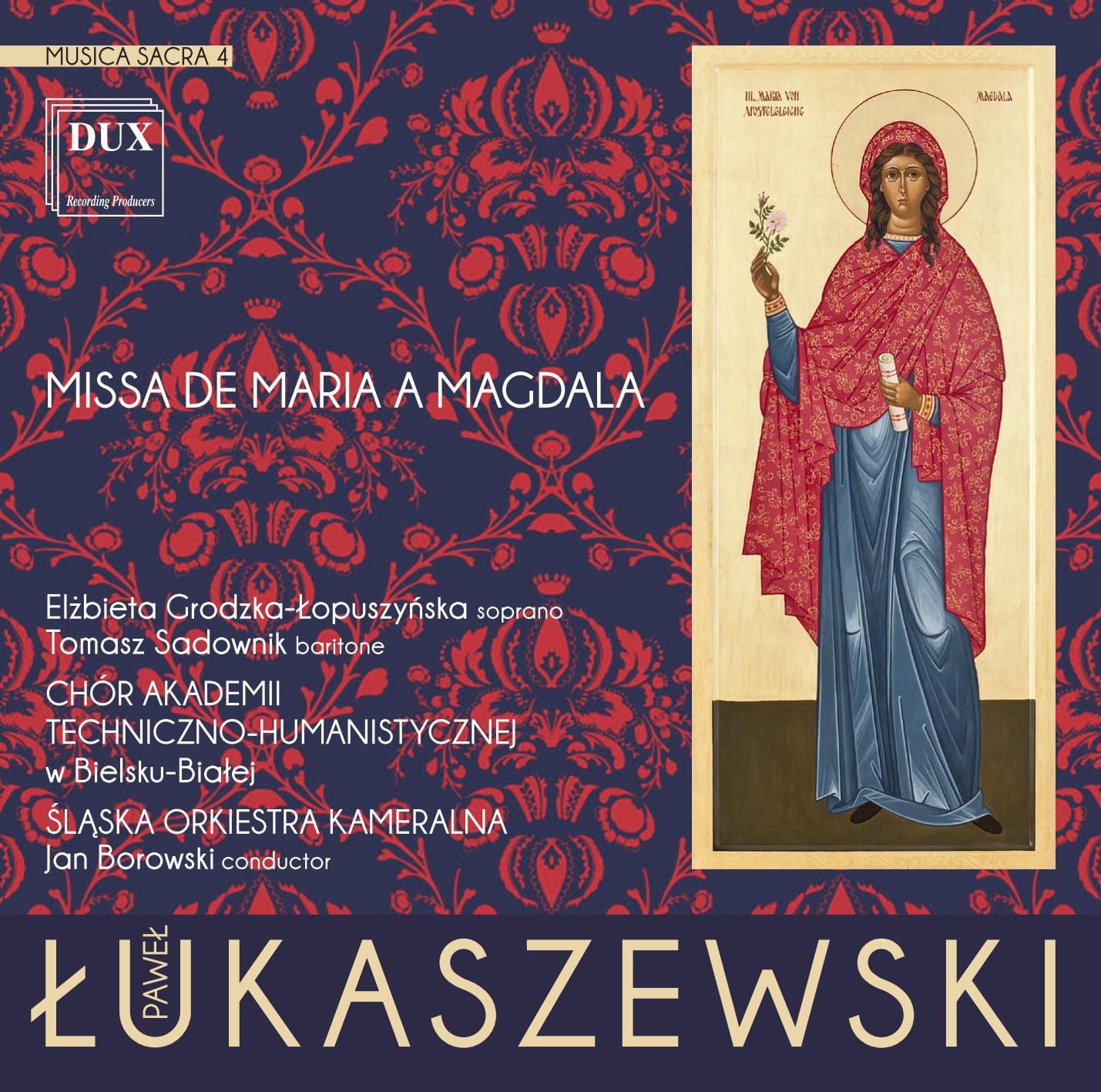 ŁUKASZEWSKI: Musica Sacra 4
ŁUKASZEWSKI: Musica Sacra 4
Missa de Maria a Magdala
Chór Akademii Techniczno-humanistycznej w Bielsku Białej, Elżbieta Grodzka-Łopuszyńska – soprano, Tomasz Sadownik – baritone, Silesian Chamber Orchestra
DUX 0944
* World premiere recordings
In his full-page review for the prestigious Gramophone magazine (December 2013 issue), Guy Rickards explores DUX Records’ 4-CD collection representing the 22-year compositional history of Paweł Łukaszewski, who served as the PMC’s 2011 Paderewski Lecturer at USC:
Paweł Łukaszewski (b. l968) is one of the leading Polish composers of the middle generation. He has built an enviable reputation not just in his homeland but further afield, not least in Britain, where his music has already appeared on disc (Hyperion, A/08). These four Dux albums now offer a wider view over his orchestral and choral output, covering works composed between 1988 and 2010 and ranging from simple carol settings to a choral symphony and a three-quarter-hour-long Mass setting.
Lukaszewski’s idiom is a euphonious brand of run-of-the-millennium tonality, occasionally reminiscent of others, with conventional thematic working-out in a broadly Roman Catholic devotional musical universe, hence Dux’s title for the series, ‘Musica sacra’. The style, not overly distinctive, sits somewhere between Górecki (the Górecki of Totus tuus rather than the Symphony of Sorrowful Songs) and, say, James MacMillan, though it sounds like neither.
[…]
Pride of place, though, goes to Veni Creator for two a cappella choirs (2004), a fine example of the creative and religious impulses unified in common purpose. The interleaved organ works set the choral works in new perspectives. Finest of all is Icon: it is not stated which picture inspired the work but the music is no less vividly realised for that.
[Sources: Gramophone (Dec. 2013), dux.pl]
Praise For Lisiecki’s New Album On DUX
 Ignacy Lisiecki. Homage To Brahms.
Ignacy Lisiecki. Homage To Brahms.
Brahms: Rhapsody in B minor Op.79 No.1 and Rhapsody in G minor Op.79 No.2; Schumann: Romance Op.28 No.2 and Fantasy Op.17; Lisiecki: Fantasy on a theme from Chorale Prelude by Brahms Op.122 No.2
Ignacy Lisiecki, piano
DUX 0790
Maria Ziarkowska’s January 2013 Muzyka 21 review of pianist Ignacy Lisiecki’s new album on DUX Records elicited many favorable comments. The album’s repertoire of warhorses by Brahms and Schumann is augmented by Lisiecki’s own tribute to Brahms—a Fantasy, based on Brahms’s Chorale Prelude Op. 122—thus giving the entire recording a well-reasoned “Homage to Brahms” title. According to Ziarkowska:
Ignacy Lisiecki is a very versatile musician. Active in many dimensions, he succeeds in every one of them. […] He certainly is an ambitious young man, who realizes his goals with great deal of attention and precision. These are the qualities present in his performances. Every note is played with uncommon precision and an ideal placement in time. Simultaneously, these elements do not stifle the sensitivity the composer invested in every phrase. [Lisiecki’s] renditions are rich in tone color. In conclusion, the album “Homage to Brahms” is truly worthy of notice and of multiple hearings. I recommend it highly!
[Sources: Muzyka 21 (Jan. 2014), dux.pl]
New On Acte Préalable
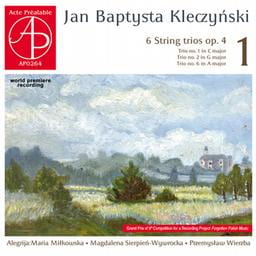 Jan Baptysta Kleczyński, vol. I: 6 String Trios Op. 4
Jan Baptysta Kleczyński, vol. I: 6 String Trios Op. 4
Jan Baptysta Kleczyński (1756-1828): Trio in C major op. 4 no. 1; Trio in G major op. 4 no. 2; Trio in A major op. 4 no. 6
Trio Alegrija: Maria Miłkowska, violin; Magdalena Sierpień-Wywrocka, viola; Przemysław Wierzba, cello
AP 0264
 Jan Baptysta Kleczyński, vol. II: 6 String Trios Op. 4
Jan Baptysta Kleczyński, vol. II: 6 String Trios Op. 4
Jan Baptysta Kleczyński (1756-1828): Trio in D major op. 4 no. 3; Trio in E flat major op. 4 no. 4; Trio in B flat major op. 4 no. 5
Trio Alegrija
AP 0265
The years 1756 and 1828 embrace the life of J B Kleczyński, a distinguished Polish violinist, conductor and composer. His op. 4 collection is made up of six String Trios. Although Kleczyński employs the classical sonata cycle in all of them, his keen melodic sense makes the compositions original and full of interesting, fresh ideas rather than mere constituents of a wider whole. Listening and analysing them in their chronological order makes it possible for us to pick up the changes that occurred in Kleczyński’s style, taking us from the rococo pastorality to the sophistication of classical means, or even a certain turn towards Romanticism. The String Trios op. 4 may be a grateful material for the modern recipient, being wonderful evidence that the music of the Classical era is much more than just Haydn, Mozart and Beethoven: there are plentiful musical gems by other masters too. A Pole, J B Kleczyński was one of such masters!
 Roman Maciejewski: Works for Violin and Piano
Roman Maciejewski: Works for Violin and Piano
Roman Maciejewski (1910-1998): Sonata for violin and piano; Notturno for violin and piano; 7 Caprices by Paganini
Maciej Łabecki, violin and Elżbieta Tyszecka, piano
AP 0275
Reviewer Paweł Chmielowski gave this World Premiere recording of lesser known works by Roman Maciejewski 5 stars in the January edition of Muzyka 21.
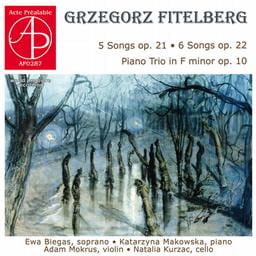 Grzegorz Fitelberg: Songs & Piano Trio
Grzegorz Fitelberg: Songs & Piano Trio
Grzegorz Fitelberg (1879-1953): 5 Songs op. 21 (words: Richard Diehmel); 6 Songs op. 22 (words by German poets); 3.Trio for violin, cello and piano in F minor op. 10
Ewa Biegas, soprano; Katarzyna Makowska, piano; Adam Mokrus, violin; Natalia Kurzac, cello
AP 0287
[Source: acteprealable.com]
New on NAXOS
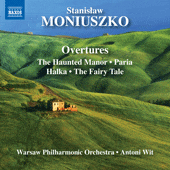 MONIUSZKO, S.: Overtures
MONIUSZKO, S.: Overtures
Stanisław Moniuszko: Overtures from Bajka [The Fairy Tale], Paria, Halka, Verbum Nobile, Flis [The Raftsman], Hrabina, Straszny dwór [The Haunted Manor], Jawnuta, Nowy Don Kiszot, czyli Sto szalenstw [The New Don Quixote, or 100 Follies], and Kochanka hetmanska
Warsaw Philharmonic; Antoni Wit, cond.
NAXOS 8.572716
Stanisław Moniuszko was Poland’s leading opera composer in the 19th century, his work said to “bridge the gap between Chopin and Szymanowski.” His skill as a born melodist is apparent in the ‘beautiful and inspired’ overture to Paria, while the dramatic Halka was the work which brought him national acclaim. An affinity with Liszt’s tone poems can be heard in the substantial overture, while the scene for The Haunted Manor is set with an atmospheric Intrada.
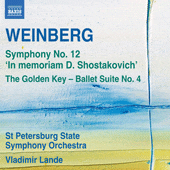 WEINBERG, M.: Symphony No. 12 / The Golden Key Suite No. 4
WEINBERG, M.: Symphony No. 12 / The Golden Key Suite No. 4
Mieczysław Weinberg: Symphony No. 12, Op. 114 ‘In Memoriam D. Shostakovich’; The Golden Key Suite No. 4 , Op. 55d
St. Petersburg State Symphony Orchestra; Vladimir Lande, cond.
NAXOS 8.573085
Polish-born composer Mieczysław Weinberg’s symphonies are recognized today as a substantial continuation of the Russian tradition. His Twelfth Symphony, written in the style and spirit of Shostakovich, is a response to the death in August 1975 of his great friend and supporter of 32 years. With its subtle stylistic allusions to Shostakovich, this is the longest and most wide-ranging of Weinberg’s purely orchestral symphonies. This recording has been prepared utilizing the composer’s hand written materials and markings. One of only two surviving ballet scores, The Golden Key is a compelling satire, extending a lineage which includes Prokofiev and Stravinsky. The St Petersburg State Symphony Orchestra and Vladimir Lande have also recorded Weinberg’s Nineteenth(8.572752) and Sixthsymphonies (8.572779).
TANSMAN, A.: Piano Music
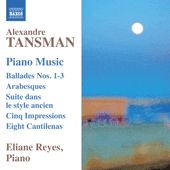 Ballades Nos. 1-3 ; Arabesques Nos. 1-6 ; Suite dans le style ancien; 5 Impressions ; 8 Cantilenes “Homage to J.S. Bach”
Ballades Nos. 1-3 ; Arabesques Nos. 1-6 ; Suite dans le style ancien; 5 Impressions ; 8 Cantilenes “Homage to J.S. Bach”
Eliane Reyes, piano
NAXOS 8.573021
Few composers in the twentieth century have such an exceptionally far-ranging career as Alexandre Tansman. Born in Poland in 1897 at Łódź, also the birthplace of his friend, the pianist Arthur Rubinstein, Tansman studied at the conservatory there and in Warsaw. He had as a fellow student the famous conductor and composer Paul Kletzki, who, as a violinist, took part in the first performance of Tansman’s now lost Piano Trio No. 1 and later conducted also in Paris his Fifth Symphony [Marco Polo 8.223379]. After winning in 1919 the three first prizes in the national composition competition organized in the newly established Polish Republic, Tansman settled in Paris, where he had the support and encouragement of Ravel and Roussel.
When Tansman arrived in Paris in 1919, he soon joined the ranks of the most prominent composers and musicians of his time. This program ranges from the Suitedans le style ancien written in the fashionable neo-baroque style of the 1920s and ’30s, to the poetic Arabesques, the joyful Cinq Impressions and, with their tragic overtones, the Ballades Nos1–3 which are among the composer’s most personal and original works. The post-war EightCantilenas were Tansman’s homage to the meditative aspects of JS Bach’s music. Eliane Reyes’s “memorably refined, dexterous and committed” (Gramophone) recording of Tansman’s 24Intermezzi can be found on Naxos 8.572266.
[Source: press release]
Performances
Colburn School Features Polish-Jewish Composers In Concert
By Gary Fitelberg
On November 17, 2013, the Colburn School of Music featured three Polish-Jewish composers in a concert of largely forgotten music performed by the ARC Ensemble in Zipper Hall. One the program were Jerzy Fitelberg (1903-1951) and his Sonatina for Two Violins (1934), Szymon Laks (1901-1983) and his Piano Quintet on Polish Popular Themes (1945), and last but definitely not least Mieczysław Weinberg (1919-1996) and his Piano Quintet, Op. 18 (1944). Each piece was magnificent and majestic musically.
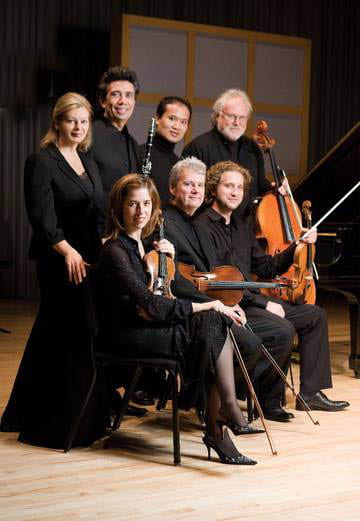 Fitelberg’s Sonatina for Two Violins was set in two movements: Allegro moderato and Tema con varizioni. Performed by violinists Erika Raum and Benjamin Bowman, this opening piece captivated the small but mighty crowd with loud applause. Laks’ Piano Quintet on Polish Themes followed to the delight of the crowd in four lively and powerful movements: Allegro quasi presto, Lento sostenato, Vivace non troppo, and Allegro moderatomo deciso. It was played by pianist Dianne Werner. Lastly, Weinberg’s Piano Quintet was a piece in five movements—Moderato con moto, Alegretto, Presto, Largo and Allegro Agitato—and was played by pianist David Louie. Both of these piano pieces were played simply splendidly.
Fitelberg’s Sonatina for Two Violins was set in two movements: Allegro moderato and Tema con varizioni. Performed by violinists Erika Raum and Benjamin Bowman, this opening piece captivated the small but mighty crowd with loud applause. Laks’ Piano Quintet on Polish Themes followed to the delight of the crowd in four lively and powerful movements: Allegro quasi presto, Lento sostenato, Vivace non troppo, and Allegro moderatomo deciso. It was played by pianist Dianne Werner. Lastly, Weinberg’s Piano Quintet was a piece in five movements—Moderato con moto, Alegretto, Presto, Largo and Allegro Agitato—and was played by pianist David Louie. Both of these piano pieces were played simply splendidly.
According to the program notes:
This concert program featured the works of three Polish Jews whose lives were deeply affected by the Third Reich’s racial ideology: Jerzy Fitelberg, who found a safe haven in New York City; Szymon Laks -who survived Auschwitz, settled in Paris and gradually moved from composition to literature and translation-and the most acclaimed of the three Mieczysław Weinberg, who fled his native Poland and spent the rest of his life in the Soviet Union, befriending and being compared to the Russian composer Shostakovich.
Dr. Richard Braun, M.D., one of the audience attendees and director of the Jewish Music Commission of Los Angeles remarked at the concert, “Those in the audience were very lucky to be present at such a great concert. I really loved the concert.”
ARC Ensemble Artistic Director Simon Wynberg must be commended for bringing these composers and their works back to life from the dusty archives of forgotten history and music, and paying homage to their musical legacy.
The last ten years have seen the ARC Ensemble (Artists of the Royal Conservatory) become one of Canada’s pre-eminent cultural ambassadors. Its members are all senior members of the faculty of the Conservatory’s Glen Gould School, with great artists drawn from its most exceptional students and alumni. Two of its releases (on RCA Red Seal) have been nominated for Grammy awards. The ensemble has toured widely and enjoys regular airplay on networks around the world. Its concerts have been broadcast on the CBC, NPR and radio shows throughout Europe.
At the heart of the ARC Ensemble’s activities is the recovery of repertoire marginalized as a result of political supression and changes in musical fashion. Its acclaimed “Music in Exile” series has been presented to critical acclaim in Tel Aviv, New York, London, Budapest, Toronto and now Los Angeles. International tours have taken the ensemble throughout Canada and the USA, as well as Europe, Scandanavia and China. The ensemble’s recent highlights include its Wigmore Hall debut in March, a return to Amsterdam’s Concertgebouw and performances at Canada’s Stratford Festival. The ARC Ensemble’s fourth recording (on Chandos) dedicated to the music of Israeli composer Paul Ben-Haim was released to unanimously enthusiastic reviews. The 2013-14 season includes engagements in Europe, as well as a series of concerts in New York’s Lincoln Center Festival devoted to the chamber music of Miezcyslaw Weinberg.
Here is what three leading publications state about the ARC Ensemble.
“Passion, polish and vitality”—The New York Times
“Sets the skin rippling at every turn”—The Strad
“An impressive group of musicians”—The Washington Post
The ARC ensemble played these three pieces to absolute mastery and perfection. Special thanks to Simon Wynberg, the ARC Ensemble, Colburn School of Music, and the sponsor Orel Foundation are due for recognizing the worth of these composers and breathing new life into their compositions. We owe them a large debt of gratitude. The ARC Ensemble and its director are “Ambassadors of Polish Music” and should be commended for their huge efforts in revitalizing this music and preserving the legacy of Polish music. Thank you for orchestrating a chamber music concert of exceptional music and quality.
Gary Fitelberg is a musicologist, music critic and historian specializing in Polish-Jewish music and musicians.
Anniversaries
Born This Month
- 1 January 1927 – Juliusz LUCIUK, composer, musicologist
- 1 January 1872 – Tadeusz JARECKI, conductor (d. 1955)
- 1 January 1911 – Roman TOTENBERG, violinist and pedagogue
- 2 January 1894 – Artur RODZIŃSKI, conductor, music director (d. 1958)
- 2 January 1907 – Henryk GADOMSKI, composer and conductor (d. 1941, Auschwitz)
- 3 January 1885 – Raoul KOCZALSKI (d. 1948), pianist and composer
- 13 January 1921 – Wanda WILK, founder of the Polish Music Center(d. 2009)
- 17 January 1898 – Jerzy LEFELD, pianist and piano professor
- 22 January 1944 – Vincent SKOWRONSKI, violinist
- 23 January 1888 – Jerzy GABLENZ, composer (d. 1937)
- 25 January 1913 – Witold LUTOSŁAWSKI, composer (d. 1994)
- 25 January 1928 – Andrzej CWOJDZINSKI, composer and conductor
- 28 January 1717 – Just Franciszek KASPER, priest, composer, conductor (d. 1760)
- 26 January 1886 – Artur RUBINSTEIN, pianist (d. 1981)
- 31 January 1926 – Stanislaw PRÓSZYNSKI, composer
Died This Month
-
1 January 1953 – Ludomir RÓZYCKI (b. 1884), composer, pianist, member of the group Young Poland
-
9 January 1842 – Józef KROGULSKI (b. 1815), pianist, conductor, voice teacher
-
9 January 1981 – Kazimierz SEROCKI (b. 1922), composer, co-founder of the Warsaw Autumn Festival
-
11 January 1935 – Marcellina SEMBRICH-KOCHAŃSKA (b. 1858), singer – coloratura soprano
-
12 January 1934 – Pawel KOCHAŃSKI (b. 1878), virtuoso violinist, Szymanowski’s collaborator
-
17 January 1969 – Grażyna BACEWICZ (b. 1909), composer, violinist, pianist
-
19 January 1951 – Stanislaw GOLACHOWSKI (b. 1907), musicologist
-
21 January 1618 – Krzystof KRAINSKI [Crainscius], preacher, author of a song collection (b. 1556)
-
23 January 1946 – Feliks NOWOWIEJSKI (b. 1877), composer, conductor, organist
-
23 January 1921- Władysław ŻELEŃSKI, composer (b. 1837)
-
26 January 1946 – Ignacy FRIEDMAN, composer and virtuoso pianist (b. 1882)
